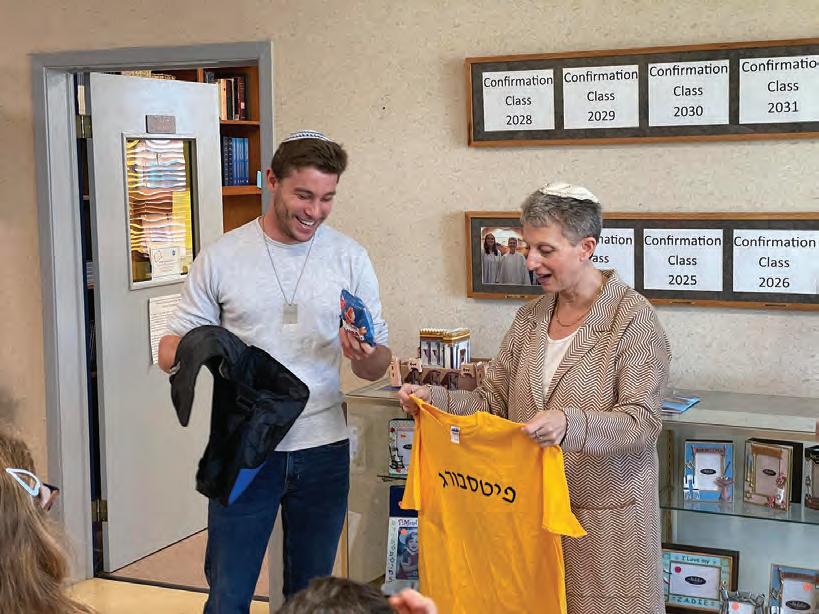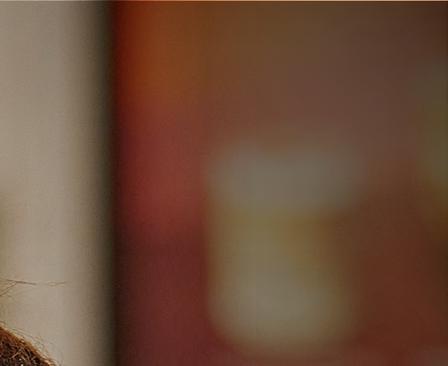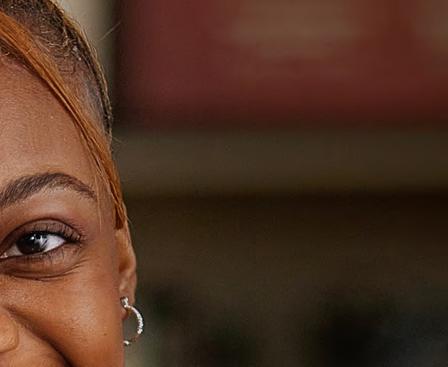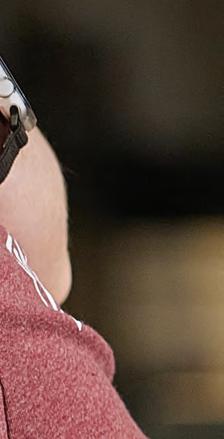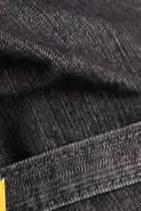









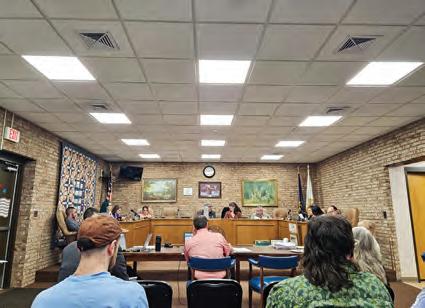 By David Rullo | Senior Sta Writer
By David Rullo | Senior Sta Writer
At an April 16 meeting, Etna Borough Council voted to pass a resolution urging “the United States Federal Government to work cooperatively toward an immediate deescalation and permanent cease-fire in Israel and Occupied Palestine.”
YThe South Hills resident arrived in Tel Aviv on April 12 as part of a mission organized by the Jewish National Fund. She was prepared to enter a country at war. When she arrived, she found Israel operating under the maxim of “business as usual,” despite its mission to dismantle the terrorist group Hamas in Gaza.

“We went out to dinner,” she said. “We’re staying at the hotel, hanging out at the beach and I kept saying, ‘This is crazy. There’s a
sort of things members of the Diaspora do when they come to Israel in the middle of war: working on farms, making sandwiches, cleaning and repairing buildings, etc.
Iran, however, had other plans.
The Tissenbaums were woken by notification after notification on their phones. It wasn’t long before a message arrived saying that the mission had been canceled.
The unanimous vote came after a chaotic and confused conversation about the resolution, which council members received just four days earlier on April 12. It was not available to the public before the meeting.
The language of the bill, which was written by council members Jessica Semler and Alice Gabriel, was altered three times during the meeting. Solicitor John Rushford was asked to read the final version near the end of the discussion but was unable to do so because of computer issues. Instead, Semler restated the changes that were made.


She spent Shabbat morning at the beach while people played soccer around her. Soon, she started to hear from friends at home asking if the mission, which was supposed to start at 4:30 a.m. the next morning, was still taking place because there was talk of an attack from Iran.
“And then we started getting notifications about the drones that were being sent from Iran,” she said. “At first, it was like, ‘What? How could this be?’”
Tissenbaum and her family were staying at a small, boutique hotel and were unsure of what to do if Tel Aviv was hit by rockets and drones.
Due to the late date that council members received the resolution and the confusion that took place during deliberations, Council Chairperson Dave Becki asked several times if the council would prefer to table the vote until its May meeting. That suggestion was rejected.
The approved resolution calls for the Biden administration “to call for and facilitate de-escalation and a permanent cease-fire


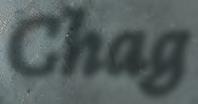

p Pennsylvania Supreme Court Justice David Wecht spoke at Duquesne University’s law school, delivering the speech “Antisemitism and the Law: An American Jurist’s Perspective.”



Nicholas David Jeremy Lane, a well-read, well-traveled “good man,” died on April 9. Remembered by friends and family for his wit and devotion, Lane was funny but not uncouth, intellectual but not pedantic.
Born in London on Feb. 9, 1940, to Zena and Ben Lane, Lane attended the Highgate School, a prestigious London-based institution founded more than 450 years ago.
“He was a very gifted student,” said Adam Lane of his father. “He did very well.”
In fact, Lane did so well at Highgate that he earned a merit scholarship to Christ Church, University of Oxford.
“His parents didn’t want him to go but they couldn’t really argue with him getting a merit scholarship,” Adam Lane said.
At Oxford, Lane studied languages and “dabbled in theater,” his son continued. “I think it really broadened his horizons and broadened his mind.”

On screens, in classrooms, in print and even on transport, Nicholas Lane shared insights and observations.
Jeff Finkelstein, the president and CEO of Jewish Federation of Greater Pittsburgh, recalled Lane’s bus tours of Jewish Pittsburgh.
“He brought history to life,” Finkelstein said. “His passion for history was palpable.”
In 1997, Lane helped organize a conference to commemorate the 250th anniversary of the death of the Vilna Gaon, an 18th-century titan of Jewish thought.
For years, Lane lectured at both the University of Pittsburgh and Carnegie Mellon University’s Osher Lifelong Learning Institutes.
He amassed a collection of travel guides — many of which are held in the Rare Books and Special Collections of the University of Pittsburgh’s Library System.
Ever the student, Lane considered the past a vital teacher.
Lane was a “champion of the Jewish people,” according to David Harris, former
Lane’s worldview further expanded after university. While traveling in Europe, he met Pittsburgher Eileen Halpern. Lane and the young American woman maintained a courtship via correspondence. They eventually married and began a life in London, then Jewry movement, Lane chaired Pittsburgh’s chapter of the American Jewish Committee, the Community Relations Council of the thencalled United Jewish Federation and the board of the Pittsburgh Jewish Chronicle.
For more than a decade, Lane discussed current events on WTAE’s Shalom Pittsburgh.
Adam Lane recalled traveling to the television studio with his father several nights a week: “Just watching everyone sort of greet him, and be so impressed by him, I thought I had the coolest dad in the world.”



He was appointed by the presidents of Estonia and Lithuania to their historical commissions to record each country’s history during the Nazi and Soviet occupations and was decorated in 2007 for his work on the Lithuanian commission.
Lane also served as a trustee of The Claims Conference and worked with the organization to negotiate, disburse funds to individuals and

Submit calendar items on the Chronicle’s website, pittsburghjewishchronicle.org. Submissions also will be included in print. Events will run in the print edition beginning one month prior to the date as space allows. The deadline for submissions is Friday, noon.
q SATURDAYS, THURSDAYS, APRIL 27–MAY 9
The Healing with Nature Mosaic Project is designed to respond to the human experience of grief and loss through the healing power of nature and of creative expression. The six-week, 10-session program facilitated by mosaic artist Laura Jean McLaughlin will guide participants in the collective creation of a community mosaic mural, gathering shattered pieces together to tell a story of community healing and resilience. Saturdays, 1-3 p.m. Thursdays, 4-6 p.m. Frick Environmental Center, 2005 Beechwood Blvd. Registration required. 1027healingpartnership.org/healing-withnature-mosaic-project.
q SUNDAYS, APRIL 28–DEC. 29
Join a lay-led online parshah study group to discuss the week’s Torah portion. No Hebrew knowledge needed. The goal is to build community while deepening understanding of the text. 8:30 p.m. For more information, visit bethshalompgh.org.
q MONDAYS, APRIL 29–MAY 13
H. Arnold and Adrien B. Gefsky Community Scholar Rabbi Danny Schiff presents Torah 2. Understanding the Torah and what it asks of us is perhaps one of the most important things that a Jew can learn. In Torah 2, Schiff will explore the second half of Leviticus and all of Numbers and Deuteronomy. 9:30 a.m. $225. Zoom. jewishpgh.org/event/torah-2-2/2023-10-09.
q MONDAYS, APRIL 29–DEC. 28
Join Congregation Beth Shalom for a weekly Talmud study. 9:15 a.m. For more information, visit bethshalompgh.org.
q TUESDAYS, APRIL 30–MAY 14
Understanding and explaining Israel’s current position requires knowledge of history. In the
10-part course, A History of The Arab-Israel-Iran Conflict: All You Need to Know, Rabbi Danny Schiff will provide a full overview of the regional conflict that Israel has experienced over the last century. The cost of taking a course is never a barrier to participation. If price is an issue, please contact the organizer of this course so that we can make the cost comfortable for you. $145. 8 p.m. jewishpgh. org/series/history-of-the-arab-israel-iran-conflict.
q WEDNESDAYS, MAY 1–DEC. 18
Temple Sinai’s Rabbi Daniel Fellman presents a weekly Parshat/Torah portion class on site and online. Call 412-421-9715 for more information and the Zoom link.
Bring the parashah alive and make it personally relevant and meaningful with Rabbi Mark Goodman in this weekly Parashah Discussion: Life & Text. 12:15 p.m. For more information, visit bethshalompgh.org/life-text.
q WEDNESDAYS, MAY 1, 15, 29; JUNE 26; JULY 10, 24; AUG. 7, 28; SEPT. 4, 28
Chabad of Monroeville invites you to spend an hour playing mahjong and other games. Play, shmooze, learn a word of the Torah, say a prayer for Israel and, of course, nosh on some yummy treats. Free. 7 p.m. RSVP is required: SusanEBurgess@gmail.com, or text or call 412-295-1838. 2715 Mosside Blvd. jewishmonroeville.com/mahjong.
q THURSDAY, MAY 2
Film Pittsburgh and The Arthur J. and Betty F. Diskin Cultural Endowment Fund of the Jewish Federation of Greater Pittsburgh present JFilm Festival’s Opening Night screening of: “Left Alone Rhapsody: The Musical Memoir of Pianist John Bayless,” followed by a dessert reception, live performance by John Bayless and question-and-answer with Bayless and director Stewart M. Schulman. 7 p.m. Carnegie Musical Hall. $118. 4400 Forbes Ave. filmpittsburgh.org.
q THURSDAYS, MAY 2–DEC. 5
Join Beth El Congregation of the South Hills for Hope & Healing on Zoom the first Thursday of
each month, a 30-minute program led by Rabbi Amy Greenbaum. Chant, breathe, pray for healing and seek peace. Call Beth El at 412-561-1168 to receive the Zoom link. 5:30 p.m. bethelcong.org.
q SATURDAY, MAY 4
This Mother’s Day season, it’s time for NCJW’s M.O.M, indoor/outdoor Pittsburgh Mom Owned Market. The shopping event will be just in time for shoppers looking for the perfect Mother’s Day gift — a gift for mom made by a mom. More than 20 mom-owned businesses will be offering prepared and hot food, handmade jewelry, art and decorative items, clothing, upcycled items and other handmade goods, as well as free on-site childcare and kids’ activities. 10 a.m. 1620 Murray Ave. ncjwpghevents. org/upcoming-events.
q SATURDAY, MAY 4 to SUNDAY, MAY 12
Film Pittsburgh’s JFilm Festival, Pittsburgh’s largest Jewish cultural event, will showcase 16 engaging and thought-provoking, Jewish-themed, independent feature films from around the world. For more information or to purchase tickets, visit FilmPittsburgh.org or email us at info@ filmpittsburgh.org. 7 p.m. $18. filmpittsburgh.org.
q SUNDAY, MAY 5
Join Rodef Shalom Congregation as Payadora Tango performs award-winning music from “Silent Tears, The Last Yiddish Tango.” From inspiring songs about survival to mournful laments, this program, based on poems, testimonies and writings of women who survived the Holocaust, conveys a depth of emotion rarely sung about. $18. 2 p.m. rodefshalom.org/SilentTears.
q MONDAY, MAY 6
Join Pittsburgh Jewish Chronicle senior writer David Rullo at Beth El Congregation of the South Hill’s First Monday as he discusses his book, “Gen X Pittsburgh: The Beehive and the 90s Scene.” Enjoy a lunch of Beehive favorites and coffee bar. 11:30 a.m. 1900 Cochran Road. bethelcong.org.
Join the Holocaust Center of Pittsburgh for its annual Yom HaShoah Commemoration honoring
the victims of the Shoah, as well as survivors and their families, with readings, music and candle lightings. 7 p.m. Campbell Memorial Chapel, Chapel Hill Road, 15232. hcofpgh.org/event/2024-yomhashoah-commemoration.
q THURSDAY, MAY 9
Join the 10.27 Healing Partnership for Virtual Legal Appeals Process Educational Program Professor David Harris from the University of Pittsburgh’s School of Law will explain what appeals are and the function they serve. Free. 6 p.m. Zoom only. 1027healingpartnership.org/ event/virtual-legal-appeals-processeducational-program.
q SUNDAYS MAY 12, 26; JUNE 9, 23; JULY 7, 21; AUG. 4, 18; SEPT. 1, 15, 29
Chabad of Monroeville invites you to BLT (Bagel, Lox, Tefillin), an in-person tefillin club followed by breakfast. No prior experience necessary. Tefillin available for use. 9 a.m. 2715 Mosside Blvd. RSVP appreciated at chabad@jewishmonroeville.com
q WEDNESDAYS, MAY 15; JUNE 19; JULY 17: AUG. 21; SEPT. 18; OCT. 16; NOV. 20; DEC. 18
Join AgeWell for the Intergenerational Family Dynamics Discussion Group at JCC South Hills the third Wednesday of each month. Led by intergenerational specialist/presenter and educator Audree Schall. The group is geared toward anyone who has children, grandchildren, a spouse, siblings or parents. Whether you have family harmony or strife, these discussions are going to be thoughtprovoking, with tools to help build strong relationships and family unity. Free. 12:30 p.m.
q SUNDAY, MAY 19
Join the entire Jewish community for the best adult Israel Independence Day party in the ‘Burgh. Enjoy hora music and dancing, Israeli kosher food, photo booth, DJ Israeli music, face painting and more. 7 p.m. $45; $25 for students. JCC Pittsburgh, Levinson Hall. 412friendsofzahal.org. PJC
APassover installation in Oakland aims to remind people about the estimated 240 hostages taken by Hamas from Israel on Oct. 7.
Located at Schenley Plaza on the University of Pittsburgh’s campus, the installation includes three sections: one for hostages still in Gaza, one for freed hostages and one for hostages confirmed dead whose bodies have not been released by Hamas. The tables include place settings, wine, Haggadot, matzo, seder plates and salt water. Each seat includes signage with a hostage’s name and age.
University of Pittsburgh first-year student Tamar Franbuch helped erect the installation on April 18.
“It’s very personal for me,” she said. “I know one of the hostages. Most of my family is still in Israel, so I just wanted to come out here and do what I can.”
Fellow Pitt student Michaela Springer said that volunteering on-site follows months of campus activism.
“I think it’s really important for people to know that you can feel for victims on

both sides,” she said. “And this is one way of showing that these are people, these are human beings, who aren’t going to be at their seders because they’re held hostage.”
April 24, the second night of Passover, will mark 200 days of
captivity, said Adam Hertzman, Jewish Federation of Greater Pittsburgh’s associate vice president of marketing.
“During an unprovoked attack, Hamas took hostages — civilians and even babies hostages — in violation of international law,”
Hertzman said.
Working with Hillel JUC to create the installation before the holiday is critical, he added.
Pitt student Yoni Preuss said that the installation should prompt pause and inquiry.
“We have to have these conversations,” he said. “It’s important to remember what’s happening.”
Passover marks the ancient Israelites’ exodus from Egypt. That narrative, which is typically shared during a seder, celebrates the path from bondage to freedom.
Seder participation remains among the most popular forms of Jewish expression, as 62% of Jews held or attended a seder in the last year, according to Pew Research Center’s Jewish Americans in 2020 report.
Passover is coming, but the Oakland installation’s message is not dependent on faith, Franbuch said.
“I want non-Jews to take away that we’re human — Israelis are human — that the hostages are human, that they’re civilians and that they don’t deserve this. And for Jews, it could have been us. We are the same as them. And to not forget that.” PJC
Adam Reinherz can be reached at areinherz@pittsburghjewishchronicle.org.
‘The Last Yiddish Tango’ blends award-winning music with testimonies of women who survived the HolocaustBy Justin Vellucci | Special to the Chronicle
Pittsburghers soon will get to experience an award-winning cross-pollination of Yiddish music with testimonies from women who survived the Holocaust.
To mark Yom HaShoah (Holocaust Remembrance Day), Rodef Shalom Congregation will host on May 5 the Pittsburgh premiere of “Silent Tears: The Last Yiddish Tango,” whose music in 2023 hit No. 1 — the first Yiddish-language album ever to do that — on World Music Charts Europe.
The testimonies come from a poetry project launched at a Jewish retirement home and deal with themes of long-term trauma, sexual violence and more, said Dan Rosenberg, the former Pittsburgh-based journalist and producer bringing the show to his old hometown.
The show is composed by Rebekah Wolkstein and performed by the musical group Payadora Tango. In addition to the poetry, it includes several works based on Holocaust survivor Molly Applebaum’s memoir, “Buried Words,” Rosenberg said. During part of World War II, Applebaum, now 93 and living in
Toronto, was buried in a box underground at a farm outside Krakow, and forced to live among filth, insects — and darkness.
story,” Rosenberg said. “Every single person, this is a light that was lost and a life that was shattered.”
The producer said the show’s “inspiring songs about survival and mournful laments” convey an intense emotional depth.
Rosenberg — who helped stage concerts for the Grammy-nominated 2016 project “Yiddish Glory: Lost Songs of World War II” — moved to Pittsburgh at age 11 in 1978 and became a bar mitzvah two years later at
(He also arrived in what he called “a sports paradise,” catching the Pittsburgh Pirates play in a 1979 World Series game at Three Rivers

Rosenberg said he later attended college at the University of Michigan and then relocated to Canada.
“Silent Tears” has taken Rosenberg, as a producer, around the world. It’s been staged, among other places, in Australia, Brazil and throughout Europe. And he plans to take the show to Asia.
“We’ve had an amazing experience presenting this,” Rosenberg said. “And we’ve
been lucky enough to present it all over.”
Rodef Shalom Cantor Toby Glaser, an Australian who moved to Pittsburgh in July, said the first musical performance staged during his tenure at the Fifth Avenue synagogue is central to his work there.
“On a professional level, it’s important to uplift voices of the Shoah we haven’t heard before,” Glaser said. “It’s heavy material … but I think there’s something powerful about holding things in a new light.”
The show has drawn critical praise.
Earlier this year, the Canadian Folk Music Awards honored Rosenberg and co-producer Drew Jurecka as producers of the year.
“It’s been quite remarkable to see — both their stories being told and the musicians being honored for their word,” he said. “Hopefully, we can learn from these stories about the horrific consequences of bigotry and antisemitism.”
The show will be presented by Rodef Shalom in partnership with the Holocaust Center of Pittsburgh and Classrooms Without Borders. Reservations are required. The show is free for Rodef Shalom and Temple Sinai members. Tickets for the public cost $18. PJC
Justin Vellucci is a freelance writer living in Pittsburgh.
‘I love being different’: Jewish comedian shares laughs about her experience with Tourette’s syndromeBy Abigail Hakas | Special to the Chronicle
Once Pamela Schuller, a Jewish stand-up comedian, takes the stage, she is quick to explain that she has Tourette’s syndrome, a neurological disorder that leads to uncontrollable vocal or physical tics.
She tells stories about every part of living with Tourette’s, from accidentally winking at a customs agent who asked if she had brought anything illegal with her, to the day her landlord accused her of owning a dog against building rules.
When she explained that she had Tourette’s and the barking was her own, the landlord swore she would never bother Schuller again. That same day, Schuller got herself a dog.
“At this point, I love having Tourette’s — 10 out of 10, I could not have asked for a more perfect-for-me neurological disorder,” she said. “I’ve learned so much from having Tourette’s.”
She quips that Tourette’s taught her the world has double standards: Nobody bats an eye when her dog barks, but it’s suddenly a problem when Schuller does.
But Schuller doesn’t shy away from talking about the more challenging parts of Tourette’s. Aside from being a stand-up comedian, she is a mental health and disability advocate with obsessive-compulsive disorder and has a doctorate in advocacy. On April 15, she came to the
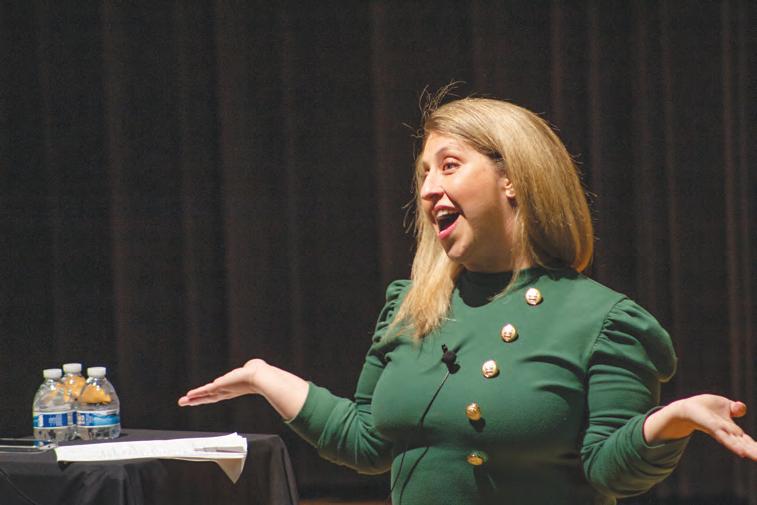
Jewish Community Center of Greater Pittsburgh in Squirrel Hill for a night of comedy and heartfelt conversation about her experience with Tourette’s.
The event was sponsored by The Friendship Circle, The Second Floor at the JCC and The Branch, alongside a plethora of community partners, including Open Up, Repair the World Pittsburgh, The Beacon, Chabad Young Professionals, The Jewish Federation of Greater Pittsburgh and Self Advocacy Voices.
Schuller recounted how, as a child, she had the worst case of Tourette’s that her doctors had ever seen. She tensed her stomach so hard that she ruptured her appendix, and she broke her neck from throwing her head back too much.
But what she remembers most of all
from her childhood is how her Tourette’s changed the way people viewed her. Once, a school nurse bent over and asked her in a patronizing tone — as if she were speaking to a toddler — if Schuller needed to use the bathroom. When she thinks of the time she broke her ankle running to catch the school bus, she doesn’t remember the pain. Instead, she thinks about the three teachers who saw her fall.
“I remember them whispering and talking, and I remember having this realization that they didn’t know how to communicate with me,” she said. “So, they did nothing, and every bus drove around me.”
This lack of understanding was a frequent reaction from adults in her life. A teacher at her religious school asked her to leave because Schuller was having vocal and
physical tics. But as she prepared to leave, her classmates spoke up for her.
“One of my classmates goes, ‘No, we’ve known Pam her whole life. We’re used to all of her noises. She doesn’t have to leave. She can stay,’” she said.
Her teacher eventually yelled that she would quit if Schuller didn’t leave. Schuller got up to go, and all her classmates followed her.
This was the theme undergirding the night of comedy: the importance of inclusion.
“That day, my world felt inclusive, and it wasn’t because of a multibillion-dollar inclusion campaign,” she said. “And it wasn’t because there was a social worker in my class. It was because my peers got it. They got it, and they made sure I knew that I was one of them and that I belonged.”
At her middle school, the woman hired to be the disability advocate for the children told Schuller’s mother that Schuller would never be able to succeed in school or go to college and that it would be easier for them if they gave up on those dreams.
She sued for the right to attend a boarding school and worked with an education consultant to find one in Burlington, Vermont. If Burlington had a motto, she said, it would be “Come as you are, but the weirder, the better.”
The boarding school taught academics in the mornings and arts in the afternoon. Students called teachers by their first names, and the teachers often brought their dogs to

FBI investigations of anti-Jewish hate crimes tripled after Oct. 7, director says
The number of FBI investigations into antiJewish hate crimes tripled in the months after Oct. 7, FBI Director Christopher Wray told Jewish leaders on an April 17 call, JTA.org reported.
Wray cautioned that the Iran-Israel conflict may not stay limited to the Middle East and could spark an attack by Iranian proxies in the American “homeland.”
“Following Iran’s direct and brazen attack on Israel over the weekend, and given what I would say is just the sheer volatility and fluidity of the environment abroad, we are urging all of our partners here and around the world to stay vigilant and on also their feet when it comes to potential for threats that may emerge from Iran, or its proxies, both overseas and even here in the homeland,” Wray said.
Wray did not say there was any indication that Iran would directly attack the U.S. Jewish community. Michael Masters, the director of the Secure Community Network, the Jewish security agency that organized the call, also said there were no known specific threats on the community.
USC Shoah Foundation distances itself from pro-Palestinian valedictorian
A Holocaust research center founded by Steven Spielberg has gotten embroiled in a drama over campus Israel speech that is dividing the University of Southern California,
where it is housed, JTA.org reported.
The USC Shoah Foundation is downplaying its role in the school’s academics after the university’s valedictorian, a pro-Palestinian student who earned a minor in “resistance to genocide,” touted her ties to the center.
After USC announced that Asna Tabassum would be the valedictorian, pro-Israel groups mounted a campaign against her, citing content on her Instagram page harshly criticizing Israel and Zionism. On April 15, USC’s provost barred Tabassum from delivering a commencement address, a move the campus head of security said was related to specific threats that people would attempt to disrupt the event if she spoke.
In a statement decrying the decision, Tabassum, a biomedical engineering major, highlighted one specific aspect of her academic career.
“I am a student of history who chose to minor in resistance to genocide, anchored by the Shoah Foundation, and have learned that ordinary people are capable of unspeakable acts of violence when they are taught hate fueled by fear,” she wrote. “And due to widespread fear, I was hoping to use my commencement speech to inspire my classmates with a message of hope. By canceling my speech, USC is only caving to fear and rewarding hatred.”
The foundation said that it wasn’t involved in her minor.
Israel’s representative at Venice Biennale shuts down art exhibit, demanding cease-fire, hostage deal
The artist representing Israel at one of the world’s foremost contemporary art exhibitions
April 29, 1979 — Prisoners of Zion arrive in Israel
shut down her exhibit until a deal for a cease-fire in Gaza and the release of hostages is reached, JTA.org reported.
Ruth Patir, whom Israel selected as its official representative at the Venice Biennale, closed her country’s pavilion on April 16 with her artwork fully installed inside. She affixed a note to the door reading, “The artist and curators of the Israeli pavilion will open the exhibition when a ceasefire and hostage release agreement is reached.”
Art world protests over Israel’s war with Hamas have become commonplace since Oct. 7, and some artists unsuccessfully pushed for Israel’s exclusion from the Biennale.
“I firmly object to [the] cultural boycott, but since I feel there are no right answer[s], and I can only do what I can with the space I have, I prefer to raise my voice with those I stand with in their scream,” Patir wrote on Instagram, explaining her decision. “Ceasefire now, bring the people back from captivity. We can’t take it anymore.”
Israel’s government did not know about Patir’s actions before she took them, according to The New York Times. She was selected as Israel’s official Venice Biennale artist in September, before the Hamas attack.
Israel’s soccer association has signed a cooperation agreement with South America’s soccer confederation that opens the door for it to compete in the continent’s elite tournaments, such as the Copa America, alongside soccer powerhouses like Argentina and Uruguay, JTA.org reported.
Israel plays in the Union of European Football Associations and has given no indication that it is about to bolt that organization to become a member of the South American association, called CONMEBOL. But in the agreement, announced on April 11, Israel and CONMEBOL pledged to increase collaboration in soccer development, coaching, refereeing, and women’s and youth football programs. It could also pave the way toward Israel’s future participation in the South American federation’s prestigious tournaments, the Copa America and the Copa Libertadores. The Copa America tournament, which is one of the mostwatched soccer competitions in the world, typically includes two teams from FIFA’s other soccer federations.
Time magazine on April 16 featured Rachel Goldberg-Polin, the mother of 23-year-old Hamas captive Hersh Goldberg-Polin, in its 2024 list of the 100 most influential people in the world, JNS.org reported.
“I want to thank Time for my inclusion on the TIME100 and for recognizing the significance and gravity of the hostage crisis and the need for the world to advocate on their behalf until each one is returned home,” Goldberg-Polin said. Hersh Goldberg-Polin had spent the night of Oct. 6 out with his best friend, Aner Shapira, at the Supernova music festival near Kibbutz Re’im. They tried to escape, but Shapira was killed and Hersh Goldberg-Polin was captured after being injured.
— Compiled by Andy Gotlieb
where you can find more details.

April 26, 1881 — Pogrom hits Kyiv Anti-Jewish violence since the assassination of Czar Alexander II in March sweeps into Kyiv. Rioters loot and destroy Jewish shops and homes. Authorities warned Kyiv’s Jews on April 25 to stay inside.
April 27, 1984 — Israel arrests Jewish Underground members
Fifteen members of the Jewish Underground, an anti-Arab terrorist group formed by members of the settler group Gush Emunim, are arrested before they can sabotage five Arab buses in eastern Jerusalem.
April 28, 2008 — Amos-3 is launched into orbit
Israel Aerospace Industries launches the Amos-3 communications satellite, based on the Affordable Modular Optimized Satellite platform, as a replacement for Amos-1. It reaches orbit 80 minutes after liftoff from Kazakhstan.
Five recently released Soviet Jewish prisoners arrive at Ben Gurion Airport. They were convicted in 1970 of hijacking a plane to escape the Soviet Union. Their story catalyzes the movement to free Soviet Jewry.
April 30, 2003 — U.S., others issue map to peace
The Quartet of the United States, Russia, the European Union and the United Nations issues its Roadmap for Peace, a framework for talks to achieve a permanent two-state solution between Israel and Palestinians.
May 1, 1956 — Eshkol approves building Ashdod
Finance Minister Levi Eshkol, a future prime minister, authorizes the establishment of Ashdod on the site of a former Palestinian village, Isdud, between Tel Aviv and Ashkelon. The first Israeli residents arrive in November 1956.


May 2, 1921 — Rioters kill writer Brenner
Writer Yosef Haim Brenner, a pioneer of modern Hebrew literature and a founder of the Histadrut, is among six people killed on the second day of rioting between Arabs and Jews in and around Jaffa. PJC

American universities are hiring lawyers, lobbyists and public relations firms as the House Committee on Education and the Workforce and the U.S. Department of Education investigate schools for Jew hatred and amid student and alumni lawsuits over antisemitism on campus.
Stanford University, Cornell University and the University of Notre Dame are among schools that have hired outside lobbying firms, hoping to avoid further congressional scrutiny, including efforts to strip the tax-exempt status from universities that fail to protect Jewish
students, in the wake of a Dec. 5 hearing of the committee, Politico reported.
Rep. Virginia Foxx (R-N.C.), chairwoman of the committee, said that schools are misspending that money.
“Universities hiring more lawyers doesn’t do a thing to address antisemitism on campus,” Foxx told JNS. “It’s an effort to protect the institutions, not the students.”
“It sounds like these institutions need to reevaluate their priorities,” she said.
Foxx’s committee is investigating antisemitism on U.S. college campuses after Oct. 7. It has requested documents and information from Columbia, Rutgers and Harvard universities; the University of Pennsylvania; and the University of California, Berkeley. The committee has


sought information about antisemitic incidents on campus and what policies and procedures university administrations have put in place to protect Jews.
“Ensuring the safety of every student on campus is what the committee’s investigation is founded on,” Foxx told JNS.
A nother House committee is also investigating universities over Jew hatred, and multiple U.S. senators have introduced legislation along similar lines.
The House Ways and Means Committee, which has taxation oversight, sent letters in March to Cornell, Harvard, Penn and the Massachusetts Institute of Technology as part of its investigation into antisemitism on campus. The committee questioned whether the universities continue to deserve tax-exempt status.
“Given the disappointing and lackluster responses by your respective universities to Hamas’s attacks and your subsequent failure to adequately protect Jewish students from discrimination and harassment, we question whether your institutions are satisfying the requirements to receive these benefits,” wrote Rep. Jason Smith (R-Mo.), the committee chair.
“These specific incidents add to ongoing concerns that ‘elite’ American universities are failing to provide instruction beneficial to individuals or the community and are instead instructing students to have disdain for the United States and the very communities they live in,” Smith added.
Sen. Tom Cotton (R-Ark.) introduced the “Woke Endowment Security Tax
Act,” which imposes a one-time, 6% tax on the endowments of the 10 richest U.S. universities to fund aid to Israel, Ukraine and the U.S. southern border, on Dec. 12. (The bill, which has no cosponsors, was referred to the Senate Finance Committee.)
On Jan. 11, Sens. Bill Cassidy (R-La.) and John Fetterman (D-Pa.) introduced the “Protecting Students on Campus Act of 2024.”
The bill, which has drawn four other co-sponsors — two Democrats and two Republicans — enhances reporting efforts on civil rights violations on campus, in cluding against Jews. It came “amid rising antisemitic incidents and attacks on college campuses in the aftermath of Hamas’s deadly attacks on Israel,” Cassidy stated.
Pur suing campus antisemitism also seems to be a winner with political donors, Politico reported.
Rep. Elise Stefanik (R-N.Y.), who asked some of the most pointed questions to the three college presidents at the Dec. 5 education committee hearing, raised $7 million in the first quarter of 2024 — more than in any previous quarter of her career. (Stefanik has taken credit for the resignations of the presidents of Harvard and Penn.)
Her donations were driven in large part by Jewish donors, including World Jewish Congress President Ronald S. Lauder and billionaire investor Marc Rowan, according to
As future lawyers make their way through their schooling and begin working with the law professionally, they have to choose which direction they would like to go. Lawyers will focus their practice on one area of the law, ensuring they are using their best skills.
Choosing which area of the law you would like to practice can seem like a daunting task. However, there are some things that you can do to help get you through the process of choosing your practice area.
It’s important to get real-world experience in the practice area you think you want to go into and are passionate about, according to Will Doyle, a partner in charge of associate recruitment at Taft Stettinius & Hollister LLP in Cleveland, and Andrew Zashin, founding partner of Zashin Law in Mayfield Heights.
“People looking for a job are really best able to find a good fit if they are honest with themselves and they think about where their heart is and about what they are passionate,” Zashin said.
People looking to get their first job as a lawyer should also remember that each law firm is different and you should choose an offer based on what you want out of the job.
Some law firms, especially smaller firms, may require you to take on more responsibility right away and other firms may not promote you as fast as you expected, he explained.
During your first job, you will also learn a lot about being a lawyer and what your interests in the field may truly be, he added.
“Generally speaking, the first two years are deep learning experiences and you’re weeded out at a lot of firms. It is often said that it takes five years to see the same issue again. I think that’s pretty true in most places, but after five years you start to know, learn and genuinely grow as a lawyer,” Zashin said.
Getting experience during your schooling, during the summertime, can give you a good idea of what type of work you might want to do professionally, as well, Doyle explained. As a summer associate, you can get experience in multiple practice areas, which may help you make your decision.
“I think that’s when it’s really important to try to touch as many practice areas of the firm as you can. Come in (and) take litigation projects, take transactional projects, take bankruptcy projects because you may think you like something based on what you learn in the classroom and then find out that you don’t. Or vice versa, think you didn’t like something in the classroom, then
you come in and find the work to be very interesting,” Doyle said. One thing to keep in mind as you work your way through the decision-making process, is that what you choose at one point in your life doesn’t have to be what you do for the rest of it, he added. Choosing which practice area you’d like to go into is not a permanent decision and it’s never too late to change your mind if you decide that one specific area isn’t what you want anymore.
“(If) a year-and-a-half in you (think) ‘this was wrong, I did not like this ...,’ it’s not too late (to change the practice area). It’s never too late. You’re not stuck in this for the rest of your career,” Doyle said. “I think even more importantly, once you have that realization you need to still continue to perform the job at the highest level that you possibly can.” PJC
Lydia Kacala writes for the Cleveland Jewish News, where this first appeared.
















2212 Murray Avenue Pittsburgh, PA 15217
Call or Text: (412) 419-1005 Website: pghestateplan.com Email: hello@pghestateplan.com
This is one in a series of articles about Elder Law by Michael H. Marks., Esq.
Michael H. Marks is an elder law attorney with offices in Squirrel Hill and Monroeville. Send questions to michael@marks-law.com or visit www.marks-law.com.
The three practice areas in which we help clients are all closely related and often affect one another. Lifetime estate planning such as a will or trust, obviously will affect how the estate turns out after that person is deceased.
Long-term care related strategic asset protection planning during a client’s lifetime affects, facilitates and eases the burdens of estate administration later on.
Strategic asset protection planning against the costs of long-term care are strategies to reduce those costs, often by getting Medicaid to pay for nursing home care as soon as possible. Like more common planning with wills and trusts, one goal is always to make sure the right people end up with the inheritance from the estate later on, after the client/patient has died.
Estate administration refers winding up someone’s affairs after they are gone, settling outstanding financial/legal issues, paying debts, taxes and expenses, and distributing what’s left over to those who are supposed to get it.
Here’s an example of how lifetime asset protection planning against the cost of long-term care saved time, energy and lots of money for a client, both while she needed lifetime care, AND after her demise.
Client Mom had almost $1 million in financial resources, all in her name only, but was going to need to advance care from assisted living to nursing home care very soon. (The average statewide cost of nursing home care this year is about $11,550 per month!)
Client Mom, a widow, had two daughters, one married with children, and one single, no children. The married daughter was financially successful; the single daughter was physically disabled and not financially successful or secure.
If Mom went into the nursing home while leaving everything as is and with no asset protection planning, she would have to spend down her financial resources month after month in the nursing home till everything was almost all gone. Then Medicaid would start to pay for her. When she had died, anything left behind still in her name only would a) be subject to Medicaid’s clawing back reimbursement under Estate Recovery, and b) require probate estate administration under her Will.
She couldn’t just give her money away to her kids and still hope to qualify for Medicaid during Medicaid’s so-called “five year look back period “without penalty from having made prohibited gifts.
But there are exceptions for some permissible gifts based on family relationships and equities and the real ways family members assist one another, so that certain transfers are allowable, safe and exempt from Medicaid penalties.
The strategy that worked so well in this case was that she gifted almost all of her financial resources to her disabled but reliable daughter, under the applicable exception for gifts to a disabled child.
(Note that gifting to both daughters would have caused a penalty period of eligibility for Medicaid as to half.)
Mom then entered the nursing home soon after and got Medicaid to pay for care there, with no penalty period of ineligibility such as would have resulted from a prohibited gift.
Advantages:
• There was no probate estate necessary when mom died because she had nothing left that
she owned in her name only.
• There was no Pennsylvania inheritance tax on her almost $1 million of net worth because she had given it away to her daughter more than one year before she died.
• There was no Medicaid claim of “estate recovery” to take any money away from Mom’s estate or her family after she went, to repay the governor for the Medicaid checks he’d written for her.
• The money eventually went to the people Mom wanted it to go to.
Less than perfect: Mom’s wealth was eventually inherited by both daughters and her grandchildren, as Mom intended, because disabled daughter voluntarily shared, even though she was the sole legal owner. (BUT if daughter had been selfish and greedy, the plan would not have worked as well).
Also, because Mom gifted the long term investments rather than daughter(s) inheriting

them, there was no advantageous “step up in basis” to avoid capital gains tax on the many years’ worth of appreciation in value, and daughters would presumably owe capital gain tax on that growth later if or when they sold the investments. Some other specific Medicaid gifting exceptions can safeguard the transfer of a residence to a “Caregiver Child” or sibling co-owners, or of any kind of property to a spouse, or to or via certain trusts for any disabled person.
Helping clients with long term care strategic asset protection or with estate administration after a loved one has died are both complicated, challenging and rewarding - not least because of helping other human beings through a very difficult time emotionally. The extra added bonus is that saving money for an elderly person who is ill at the end of their lifespan, often also helps the survivors to administer the estate more efficiently, as well.
At Marks Elder Law, we help people every day with issues like these. I invite your questions and feedback.

Former President Donald Trump’s hush money trial in New York City is not televised. The public’s only glimpses come when Trump and his legal team enter and leave the courthouse. Eagle-eyed viewers may have caught sight of a middle-aged man on Trump’s legal team wearing a yarmulke. His name is Gedalia M. Stern, and here are six things to know about him.
What’s his specialty?
Stern, 39, is a partner at the New Yorkbased law firm of NechelesLaw, where he represents “clients in both federal and state court charged with a variety of crimes, including bribery, benefits fraud, wire fraud, kidnapping, and sex crimes,” according to the firm’s website. He and his law partner, Susan Necheles, defended the Trump Organization in its 2022 criminal tax fraud trial. Necheles is the former counsel to the late Venero Mangano, known as Benny Eggs, the underboss of the Genovese crime family.
He’s well-versed in Talmud, too.
Stern spent several years studying at Beth Medrash Govoha in Lakewood, New Jersey, one of the largest yeshivas in North America,

before attending Columbia Law School, where he graduated in 2014.
Is the trial pausing for Passover?
Sort of. Passover began at sundown on Monday, April 22.
For Stern, an Orthodox Jew, the first two days of Passover (Tuesday, April 23, and Wednesday, April 24) and the last two days (Monday, April 29, and Tuesday, April 30) are considered like Shabbat, when work is prohibited. Judge Juan Merchan, who is overseeing the case, said the court will

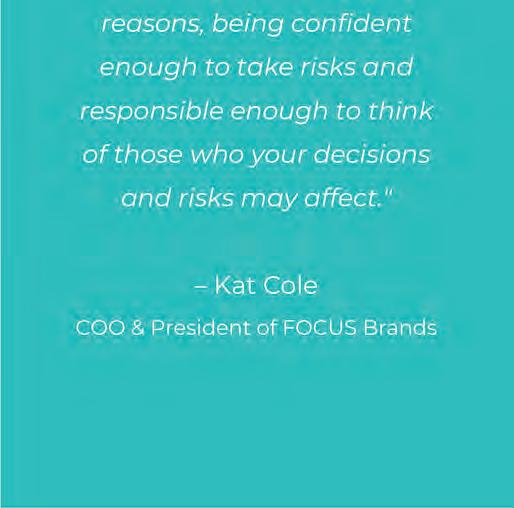
work through lunch until 2 p.m. on Monday and Tuesday of the first week of Passover and Tuesday of the second week, “to allow counsel to arrive at their holiday destination.” He said there would be no court session on Monday, April 29.
Trump has also asked the court to adjourn on May 17, so he can fly to Florida to attend the high school graduation of his youngest son, Barron.
He’s not the only kippah-wearing Trump lawyer.
David Schoen, a Modern Orthodox attorney based in Atlanta, represented Trump during his second impeachment trial in February 2021, which related to the former president’s role in the Capitol riots on Jan. 6 of that year.
Schoen chose not to wear his yarmulke during opening arguments in that trial and a video of him went viral when he drank a bottle of water with one hand and placed his other hand on his head as a makeshift head covering.
Schoen explained his decision not to wear a yarmulke to CNN: “It’s just an awkward thing and people stare at it.” But after the social media hoopla, Schoen opted to wear his yarmulke when the trial reconvened the next day.
Schoen was elected chair of the Zionist Organization of America in October 2021.


What’s another notable case Stern has worked on?
Four Jewish brothers were charged related to wire fraud and money laundering in 2020 as part of a $19 million invoicing scheme that manipulated Amazon’s vendor system to force Amazon to pay for goods that it had not ordered. For example, in one instance, they shipped and invoiced for more than 10,000 units of an item when Amazon had requested fewer than 100.
Stern represented at least one of the brothers, Shmuel Abraham, in the case.
What’s the meaning of his first name, Gedalia?
The etymology comes from the Hebrew words “gadel” (to make great) and “yah” (God). Put together, Gedalia can mean any of the following: “God is great,” “To make God great,” or “Made great by God.”
In the Bible, Gedalia was a governor of the Kingdom of Judah. He was assassinated, and the anniversary of his death, observed annually on the day after Rosh Hashanah, is one of the six fast days on the Jewish calendar. PJC
This story originally appeared in the Forward. To get the Forward’s free email newsletters delivered to your inbox, go to forward.com/newsletter-signup.


Continued from page 1
“We were told that if an alarm goes off, we should go in the stairwell because it’s the safest place. We got dressed in the event the alarms started and waited and waited and waited,” she said.
Fortunately, the drones and missiles launched by Iran around 11 p.m., never made it to Tel Aviv.
In fact, most of them never hit anything inside of Israel. More than 300 drones, low-flying cruise missiles and ballistic missiles were fired at the Jewish state — 99% were shot down by Israel and its allies, including the United States, Britain and even Jordan.
The coalition’s ability to target the incoming barrage is even more impressive when broken down by weapon type. Of the 170 drones, zero crossed into Israeli territory. All 30 of the cruise missiles fired failed to enter the country and only a small number of the more than 120 ballistic missiles entered Israeli territory. Those that did fell at the Nevatim Air Force Base, causing only
Council:
Continued from page 1
to urgently end the current violence” and to “promptly send and facilitate the entry of humanitarian assistance at the scale needed into Gaza.”
The resolution also calls for “Recognizing the need to address the root causes of crises for a pathway to lasting peace and justice.”
Text was added during the meeting to demand the release of the hostages still held in captivity by Hamas.
A handful of speakers, both in person and on Zoom, some of whom also wrote letters to the council, spoke in support of the resolution. Only Etna Mayor Robert Tuñón spoke against the resolution.
minor damage to infrastructure, according to IDF reports.
The lone injury reported was a 7-year-old Bedouin girl from Arad. She was taken to Soroka Hospital in Beersheba.
moments felt by the country’s citizens.
“The Israelis themselves were very alarmed and kind of freaking out,” she said.
By 3:30 a.m., Tissenbaum and her family were back in bed trying to fall asleep, unsure
As it turned out, 85 of the 150 expected to take part in JNF’s mission were already in the country prompting the organization to modify its plan and continue with some of the work planned.
By 2:30 a.m., the explosions seen over the skies in Jerusalem stopped, Tissenbaum said, and she and her family began getting notifications about Israel’s impressive take-down rate.
“The scariest part is that when we spoke to Israelis, yes, they’re used to bombs going off,” she said, “but they never experienced the amount of drones sent by one country to Israel.”
That information led to some tense
that most people mourn the loss of life in Israel and Gaza but that Israel has the right to defend itself against a terrorist organization.
As mayor, Tuñón said, he rejects the resolution. He said that the language goes further than what was discussed in the council’s March meeting — a resolution that only called for a cease-fire and did not reference “the root causes of crises,” which implied that Israel was solely to blame.
The mayor was also concerned about the relatively small number of residents who were aware of the resolution and its language. He pointed out that the resolution seemed “four months too late,” since President Joe Biden had already called for a cease-fire.
of how the next few days would play out — she wasn’t sure if Israel would respond to Iran’s attack immediately or if there was an opportunity for the mission to continue.
As it turned out, 85 of the 150 expected to take part in JNF’s mission were already in the country prompting the organization to modify its plan and continue with some of the work planned.
“It changed a bit,” Tissenbaum said.
the council should deal with issues like the recent flooding in the borough.
Throughout the meeting, council member Jessica Semler defended the resolution and its language, saying that it was “measured.”
Semler said that the federal government was spending American dollars on the war. She acknowledged that the money wouldn’t make its way to Etna or its bevy of projects that need to be funded, but then seemingly contradicted herself, saying the money would “exist.”
“And if we had that money,” she said, “we wouldn’t have to talk about which road we can pave or which folks we can keep in their home.”
When the Pittsburgh resident spoke with the Chronicle, she was at an IDF base helping to prepare food. The volunteers spent the previous day at a farm that had employed both Israelis as well as Gazans and those living in the West Bank.
“Of course, they’re not there now,” Tissenbaum said.
The volunteers worked five hours on the farm.
“It was hard work,” she noted, “but it was so satisfying.”
JNF, she said, did a “great job” changing the mission while keeping the 85 participants safe.
Of special significance, she said, has been speaking with IDF soldiers.
“They’re defending our country. It’s amazing. They are so grateful. They’re thanking us and we’re like, ‘No, thank you, you’re doing this so our kids and grandkids will have a Jewish homeland,” she said. “It feels special that we shared the moment on Saturday with the Israelis.” PJC
David Rullo can be reached at drullo@ pittsburghjewishchronicle.org.
signs printed that read “Etna is for everyone” and hosted a community meeting with members of the Pittsburgh Jewish community, including Jewish Federation of Greater Pittsburgh Community Relations Council Director Laura Cherner and 10.27 Healing Partnership Director Maggie Feinstein. Last month, several prominent Jewish leaders, including Federation President and CEO Jeff Finkelstein and Jewish Community Center of Pittsburgh President and CEO Jason Kunzman, spoke against an Allegheny County Council motion calling for a ceasefire. It was overwhelmingly rejected by the council. PJC
David Rullo can be reached at drullo@ pittsburghjewishchronicle.org. Iran:
Speaking as a private citizen, Tuñón said
Continued from page 3
organizations, and secure justice for Jewish victims of Nazi persecution.
The Pittsburgh transplant not only mined bygone days for present understanding but also understood the bond between those periods.
As a trustee of the AJC, he was part of the Institute on American Jewish-Israeli Relations. In its 1991 report, the group concluded that “the American Jewish community will become more diverse as the current generation shapes their Jewish identity. The individualistic Jews are not as attached to Israel or as moved by the Holocaust as are the cultural pluralists and traditionalists. Most of them are seeking spiritual meaning. They are attracted to activities which can provide them with opportunities to build an inner spiritual life and to engage in social action programs. They need to be shown that they can find these opportunities in the Jewish community.”
Lane’s activity followed traditional patterns. In childhood, he received a classical education. As an adult, he turned to newspapers to share his concerns.
After author and political commentator Peter
Instead of the resolution, Tuñón said,
In 2021, a Nazi flag was hung in the borough. At that time, Semler, Tuñón, council member Megan Tuñón and Alice Gabriel had

Beinart proposed boycotting Jewish settlements in the West Bank, Lane used a 2012 review of Beinart’s “The Crisis of Zionism” to call the position a “hopelessly impractical proposal.”
“[Beinart] has left himself open not just to
opposition, but also quite probably to ridicule. And it will make the solution to the crisis of Zionism that much harder to find,” Lane wrote.
Two years later, Lane cautioned against American Jewish support for Azerbaijan.
Writing in PJC, Lane noted, “The relationship between Israel and Azerbaijan is clearly one of ‘convenience.’ But given Israel’s increasing problems with her reputation in the world, American Jews must recognize that the risks of this relationship far outweigh the benefits.”
Both a logophile and linguaphile, Lane often used his wit for entertainment, his son recalled.
After a humorous spat emerged between The Jewish Chronicle, a London-based Jewish newspaper, and Pittsburgh’s Jewish weekly, Lane wrote to the British publication: “Like you, we publish bar mitzvah and bat mitzvah photos, but we do so before the event so that people can know what they aren’t invited to…”
“He loved words. He loved language,” Adam Lane said. “He was always making quips.”
But good-spirited rhymes and excerpts weren’t merely punchlines.
Before putting his son to bed, Nicholas Lane often told the child, “Sleep that knits up the ravelled sleeve of care.”
The Shakespearean line continues: “The death of each day’s life, sore labor’s bath, Balm of hurt minds, great nature’s second course, Chief nourisher in life’s feast.” PJC
Adam Reinherz can be reached at areinherz@pittsburghjewishchronicle.org.
Guest Columnist
Abby Mendelson

Everyone thanked me for coming, for caring, for helping. Volunteer organizers. Shopkeepers. Clerks. Baristas. Friends. Family. Soldiers. Everyone.
No, I answered. To the contrary. It’s an honor to serve the Jewish people, in Israel, during this terrible time.
To be part of history.
Flying out of Pittsburgh, I traveled to Israel to volunteer — no touring, no visiting, just helping. Putting my hands on things.
Bunking with a generous cousin and his gracious wife in the Kiryat Shmuel neighborhood of Jerusalem, I found English-speaking opportunities within walking distance — hand work, standing and sitting.
Saturday nights and four mornings a week I walked 20 minutes to the Chabad of Katamon. Standing in a large, sunlight room, I joined dozens of other volunteers from all over the world, Hewlett to Honolulu, Sydney to Seattle, Melbourne to Manhattan, Gibraltar to Great Neck. When I asked a man from Hong Kong why he was there, he looked at me quizzically.
“Because there’s a war,” he said.
Cutting large rolls, we filled them with
Guest Columnist
Matthew Schultz

In the Passover Haggadah, we read of the wicked son, who scornfully asks, “What is this worship to you?”
To you and not to him, the Haggadah stresses. This is what makes him wicked. He has separated himself from the community.
The wicked sons of today, however, preface their scorn with a proud declaration of Jewish identification.
They are anti-Zionist. They accuse Israel of genocide and liken the IDF to Nazis. They oppose Israel’s right to exist and defend itself. And they want you to know that they do all this as Jews.
When Jewish film director Jonathan Glazer framed his condemnation of Israel as a matter of Jewish principle, he became the poster child for this new archetype. There’s also actress Cynthia Nixon (“as the mother of Jewish children”); Chuck Schumer (“I speak as a member of a community of Jewish Americans”); Wallace Shawn (“Jews say ceasefire now!”) and many others.
hummus, white/yellow cheese, chocolate spread (an Israeli staple), or tuna; wrapped; sealed; placed in color-coded bins; bagged for delivery. Repeated until our 2,600 daily sandwiches were out the door.
With great energy and spirit, we were positive, joyful, hopeful. Proud of our mission, filling each sandwich with nutrients and love, we saw our task as both holy and necessary. It was a privilege to be a part of it.
Yet we knew we were filling but a fraction of Israel’s growing need. With some 300,000 people pulled off the borders, north and south, Chabad Katamon’s efforts for the displaced — the word they prefer — barely begins to help the families stuffed into vacant hotel rooms, schools, anywhere they can find temporary shelter.
Morning shift over, and coffee and croissant in the pre-spring Jerusalem sun, it was off to my afternoon gig, top floor of the Eretz Chemdah Yeshiva, a 40-minute walk away, tying tzitzit for soldiers.
For observant Jews, wearing the traditional four-cornered fringed undershirt was a given. But for others, it was something new — and the desire for them swept through the IDF with unexpected fervor. Suddenly, young men who had never donned the garment wanted one. By the time I arrived, the group had already tied 65,000 sets — with a mere 100,000 to go. Never having previously tied tzitzit, I found the task daunting. Four strings doubled over into eight; knots and wraps — 7, 8, 11, 13,
numerology for G-d’s Name is One. Making eight strings and 10 fingers function as a single unit, I refused to leave until I had tied my daily quota. Like the children who needed their lunches, the soldiers wanted something Jewish next to their skins as they went to war.
It was the least I could do.
One day, Chabad took some of us south, first to the site of the Nova Music Festival, now a memorial, and the Shuva Junction, a 24-7 pop-up hospitality stop, free meals for anyone — troops, aid workers, support personnel — rotating in and out of Gaza.
Then to a makeshift army base, so close to the border that we could hear IDF artillery, to serve dinner — burgers and BBQ. Afterward, soldiers and civilians, arms around each other, we sang and danced. Am Yisroel Chai!
And I thought: As history turns, here I am. I had come 6,000 miles, to make meals, tie tzitzit, dance with soldiers. To marvel at how young they are, how much we ask of them. To pray for their safe return, for all those in uniform, for all those stolen from their homes on Oct. 7.
The last morning I made sandwiches, I was asked to speak to the group, an unexpected accolade. I did, saying that we were together during the weeks the last four Torah portions of Exodus are read, much of the text instructions for building the traveling tabernacle and its service vessels. While we, in our time, had not been given the opportunity to perform such work, to fabricate or forge such holy implements, we had
the ‘as-a-Jew’ Jew
What motivates these “as-a-Jew” Jews?
One answer is that they want Israel to act according to their own personal sense of Jewish values. The irony, of course, is that these are the same people who think Israel needs less mixing of shul and state, not more. Nevertheless, they think the religious sentiments of Jewish noncitizens should direct Israel’s security policy.
Another answer would be that they think their Jewishness confers credibility. To be a Jew defending Israel is to be suspect of tribal bias. To be a Jew condemning Israel is to be a whistleblower.
Others might choose to pathologize the “as-a-Jew” Jew, diagnosing him as a troubled sufferer of internalized antisemitism.
The truth is simpler than any of these explanations. The “as-a-Jew” Jew pairs condemnations of Israel with references to Jewish identity because, for him or her, the two things are one and the same. To be a good Jew is to condemn Israel.
This was made abundantly clear by a recent Washington Post essay written by journalist Peter Maass titled, “I’m Jewish, and I’ve covered wars. I know war crimes when I see them.”
The essay begins with a confession: Maass is a “war-crimes reporter” whose “family bankrolled a nation that’s committing war crimes.”
“My ancestors were key funders of Jewish immigration to British-controlled Palestine,” he
writes. Later, we learn, they also raised millions for the nascent state of Israel during the War of Independence in 1948.
In other words, his ancestors helped rescue and resettle Jews during the most deadly chapter of our history, and when the Arab League attempted to finish off any Jews that Hitler had missed, his ancestors raised money to help them defend themselves.
Some might feel proud of such a heritage, but Maass identifies this as a source of psychic tension and Jewish guilt, a term which increasingly refers to the sense of innate shame that all Jews are supposed to feel for the fact of Israel’s existence.
As anti-Zionist Rabbi May Ye stated in an interview with the Jewish Women’s Archive, “Naming that I was Jewish, for me, meant recognizing in the same breath that there was blood on my hands.”
“Millions of Jews in America feel connected to Israel’s creation,” Maass writes, by which he means that millions of Jews in America are stained by this original sin. That can’t be changed — but we can do penance.
“What’s a Jew to do now?” Maass asks. The answer: Stand “against any nation that commits war crimes. Any.”
He italicizes “any” as if his Jewish principles are so strong that they must come to bear even on the Jewish state. In truth, it’s not a matter of
been given the equivalent, addressing a clear and present need: feeding Jewish children. There’s no greater or more holy service than that.
There’s an odd coda to my visit, one that encapsulates the enormous gratitude we are all feeling toward one another. Walking one morning, I was stopped on a busy street by a blue-jacketed security guard and asked if I was carrying a weapon. Startled, I said no, apparently with such honesty that I was allowed to continue unchecked.
Returning later, I was again stopped, this time by a young man in a military-looking green jacket. “Mr. Mendelson?” he asked. Shocked, I immediately thought this must be Israeli security, high-tech facial recognition from passport control. What could they want from me?
Turned out, he was not Shin Bet but instead an American whose family had spent Shabbos with us some five years ago. This young man had graduated high school, emigrated to Israel, enrolled in a hesder yeshiva — a program that combines traditional Jewish studies with IDF service — and was headed for the army.
I asked if I could shake his hand. “It’s rare,” I said, “that I get to meet a true hero.”
Then, considering the shooting at the Tree of Life building, appalling attacks on students from Berkeley to Cooper Union, and worldwide calls to murder Jews, I added, “Thank you. You’re protecting all of us.” PJC Abby Mendelson is the author of many books about Pittsburgh.
“even Israel” but of “only Israel.” I’m sure there are other countries that Maass has singled out for criticism. But I sincerely doubt there are any other countries whose very existence he opposes as a matter of religious principle.
After some more offensive drivel (“The victims of genocide — which Jews were in the Holocaust — are not gifted with the right to perpetrate one”) he arrives to what might be said to be the heart of his essay — and the key to understanding the “as-a-Jew” Jews.
“My Jewish identity was always a bit vague,” he writes. “When I was growing up, we even had a Christmas tree.” Later in life, when he saw that opposing Israel was increasingly recognized as “an act of Jewish identity,” he realized that this “felt right for him too.”
Unlike the wicked son of the Haggadah, this new Jewish archetype turns out to be neither snide nor mocking, but rather shamefaced and afraid of losing his last connection to the rich Jewish heritage of his ancestors — the very ones whose heroic legacy of Zionist activism has caused him so much angst. PJC
Matthew Schultz is the author of the essay collection “What Came Before” (2020). He is a rabbinical student at Hebrew College in Newton, Massachusetts. This article was originally published by The Jewish Journal and reprinted on JNS.
Last week, the Chronicle asked its readers in an electronic poll the following question: “Do you support Israel responding to Iran’s attack?” Of the 319 people who responded, 61% said yes; 22% said no; and 17% said they weren’t sure. Comments were submitted by 112 people. A few follow.
Israel has no choice but to respond directly against Iran, but Israel also must engage in the PR war because its is getting slaughtered in the media and with the young generation.
The successful deterrence of Iran’s attack turned world opinion back in favor of Israel. Restraint would be a better strategy.
Dayenu! Enough is enough.
I do, but not now or at any time when it might be expected, and not in any way that might affect a population center. Israel should just keep doing what it can and does do well: plan and implement surprise surgical strikes aimed at key governmental and military figures in the Iranian government. The same applies to Hamas.
Israel provoked it and, even though Iran’s response was disproportionate, right now all the other Arab nations are anti-Iran and Israel needs to keep it that way.
It’s the Middle East. When you don’t respond you’re perceived as weak. When you’re perceived as weak, the boys come after you.
Iran’s (despotic) regime felt they had to do what they did to save face with the Iranian citizens who still support them. It did little damage. The smart move for Netanyahu is to support further U.S. sanctions and not allow himself and his war hawk coalition to be provoked into a wider, dangerous, less manageable conflict.
Israel is the only country that has to defend itself for defending itself. Unbelievable.
Iran was responding to Israel’s attack. Israel repelled Iran’s attack. Israel should declare victory on that front and focus on ending the crisis in Gaza.
I’m not sure it must be an armed attack. Cyber could shut Iran down for a long time.
Yes, but the response should not involve military force. It should be economic. It needs to be proportional to the harm actually inflicted, not intended.
I support Biden’s recommendation: “Take the win.” Use restraint as a catalyst to a broader Mid East policy toward Saudi Arabia. Unfortunately, Bibi will again make the wrong choice and miss this greater opportunity. PJC
— Compiled by Toby TabachnickIt’s necessary. Israel is a peace-loving nation, but this doesn’t mean being a victim of aggressive behavior and planned oppressive action against her. Israel just needs to keep it calculated, smart and unexpected. It’s the physical Goliath, against us, the intellectual David.
Fortunately, the Iranian response caused limited injuries and damage. A response by Israel would increase the risk of a serious escalation in hostilities that could quickly get out of hand for both parties and for the United States.
Chronicle weekly poll question: Are you pleased with the results of the Pennsylvania primary? Go to pittsburghjewishchronicle.org to respond. PJC
Guest Columnist
Rob Eshman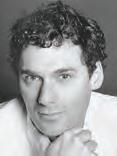
Imagine for a moment that the University of Southern California let Asna Tabassum speak.
Imagine that instead of rescinding its invitation to have Tabassum deliver the valedictorian address, which the university did last week citing security threats, USC stood by its initial decision and said Tabassum would be allowed to speak as planned, albeit with heightened security measures to ensure her safety and the safety of all students and attendees.
What would have happened? The pro-Israel groups that opposed her appearance would have continued to criticize the invitation. Students and alumni on different sides of the issues would have challenged or supported the decision. Then, on graduation day, Tabassum would have spoken. Some students would cheer, others might have gotten up and walked out, or chosen a different way to protest whatever she might have said.
In other words: Life would have gone on.
Once USC decided to offer Tabassum the top student speaking spot, the university needed to stand by its decision.
Instead, it did something that compounded
the shortsightedness and stoked even more anger: It blamed Jews.
University administrators did not explicitly name Jews as the reason behind retracting Tabassum’s speech, but stated that the intense reaction to Tabassum’s selection created insurmountable safety concerns.
“The intensity of feelings, fueled by both social media and the ongoing conflict in the Middle East, has grown to include many voices outside of USC and has escalated to the point of creating substantial risks relating to security and disruption at commencement,” wrote Andrew T. Guzman, USC’s provost and senior vice president for academic affairs. “The issue here is how best to maintain campus security and safety, period.”
There are two problems with this. The first is that USC knows very well how to maintain campus security. I taught at USC for three semesters and the school, smack in the middle of Los Angeles, excelled at ensuring a safe campus. I also attended the 2023 graduation festivities, as did Barack and Michelle Obama, who were there to watch their daughter Sasha receive her diploma. It is very hard to believe Tabassum would need more security than the former president of the United States. I don’t buy the “safety” excuse.
The other problem is that by citing “many voices outside USC” who oppose giving a platform to Tabassum, Guzman was blaming largely Jewish and pro-Israel critics, accusing them of
Jett fails to distinguish between the Israel’s government and its people
In the first line of his letter to the editor, Ambassador Dennis Jett (Ret.) says he will explain why he is voting for Summer Lee, but then the bulk of his letter criticizes the Israeli government (“It’s ‘shortsighted’ to support a candidate based on one factor,” April 19).
I agree with him. The Netanyahu government is an extremist government. But one must differentiate between the Israeli government and the Israeli people.
The Oct. 7 massacre and the Iranian missile attack weren’t attacks on the Israeli government; they were attacks on the Israeli people. Could Israel’s response to Oct. 7 have been different, causing less suffering to the residents of Gaza? Maybe, but how do you fight
threatening violence.
Where, exactly, is the evidence for that?
One of the few groups that openly called for Tabassum’s removal as speaker was Trojans for Israel, a pro-Israel student group which accused her of using antisemitic and anti-Zionist rhetoric. Trojans for Israel has no history of using or threatening violence.
USC said it received threats in other ways, including via social media. It didn’t make any of those threats public, so it’s impossible to assess who made them or how seriously to take them.
But by blaming the cancellations on these amorphous threats, USC insinuated that violence-prone Israel-supporting Jews and Jewish groups were behind the decision.
So, not surprisingly, came headlines like this one in Yahoo News: “US university pulls student speech after Jewish groups object.”
Jews and at least one Jewish group did object, as they have a right to. But did they threaten violence? Or are they taking the blame for USC’s decision to cave to controversy and criticism?
The result is university administrators, who failed miserably in their due diligence, and failed again by refusing to stand by their decision, sloughed responsibility onto Tabassum’s Jewish critics.
Imagine, instead, that USC just told the truth. If it was outside pressure from alumni that led to the cancellation, say so. If there really were credible threats of violence, then provide more detail. If the threats were serious enough that
USC feared for attendees’ safety, they should be serious enough to lead to arrests.
What existential harm would come from letting Tabassum speak? Israel, which just survived 300 drones and missiles launched by Iran, would have survived Tabassum. American Jews, who have thrived in a society that allows for the expression of unpopular opinions and open criticism, would have survived Tabassum. No doubt Jewish groups would have engaged in a healthy post-graduation public debate around any parts of the speech they found objectionable, as groups did following last year’s incendiary valedictory address at CUNY Law School.
“Anti-Muslim & anti-Palestinian voices have subjected me to a campaign of racist hatred,” Tabassum wrote in a statement released by CAIR-LA after her cancellation. “I was hoping to use my commencement speech to inspire my classmates w/a message of hope. By canceling my speech, USC is only caving to fear & rewarding hatred.”
She’s only half right. By canceling Asna Tabassum’s speech in the way it did, the university is ducking responsibility for its own choices, and stoking more hatred at a time when there’s already plenty to go around. PJC
Rob Eshman is a senior columnist for the Forward. This story originally appeared in the Forward. To get the Forward’s free email newsletters delivered to your inbox, go to forward.com/newsletter-signup.
terrorists deeply embedded in a civilian population?
As far as the accusation of genocide, thousands of the dead were Hamas terrorists. The number of dead civilians is horrible, but I did not see the same level of world outrage when Assad and Putin killed hundreds of thousands of civilians in Syria.
The reason I’m not voting for Summer Lee isn’t connected to her lack of support for the government of Israel. I’m not voting for her due to her lack of support for the people of Israel (and for the lack of understanding of the anguish of her constituents).
Mitchell Nyer Pittsburgh
This recipe takes a half-hour to prepare, but once you put it all together, simply let it simmer until it’s ready.
By Jessica Grann | Special to the ChronicleSaffron is a mysterious spice; it’s hard to pinpoint the exact flavor. I use it when I want to elevate a dish for a festive occasion.
I adapted my recipe for saffron chicken to be kosher for Passover, with only one substitution dependent on the side dish chosen. I’m sharing both versions so that you can make it for the holiday and year-round.
The chicken is braised with sautéed onions and mushrooms, white wine, fresh garlic, paprika, saffron and a small bouquet of fresh thyme. The flavors and technique used combine the best of Spanish and French cooking. The ingredients are simple, but the time put into the preparation gives a result worthy of your holiday or Shabbat table.
I prefer to make braised food for holiday dinners because it holds up better when warming or re-heating. The flavors seep in with time, so you can make this a day ahead and rewarm it easily for your meal the following day. Choosing dark meat chicken on the bone is always advised for the same reason: It doesn’t dry out the way chicken breast does. I use chicken thighs, but you can use a mixture of thighs and legs, or even quarters — just add a bit more time for the quarters because they are larger and take longer to cook.

3 pounds of chicken thighs on the bone
2 medium-sized yellow onions, finely chopped or thinly sliced
24 ounces of white mushrooms, washed and sliced
7 cloves of garlic, divided
5 tablespoons olive oil, divided Kosher salt
1½ teaspoons sweet paprika, divided
A nice pinch of saffron (about ¼ teaspoon)
A bouquet of 6-8 fresh thyme strands
1 cup dry white wine
2 cups chicken stock, or leftover chicken soup (as long as it’s not strongly flavored with other spices or herbs)
¼ cup water
2 tablespoons potato or corn starch for Passover; all-purpose flour for year round
1 lemon sliced into wedges
Chopped parsley to garnish (optional)
Pat dry the chicken pieces and sprinkle both sides with coarse kosher salt.
Peel and chop/slice the onions to your preference, peel the garlic cloves, and wash and slice the mushrooms. I vary the width of the mushroom slices between thin and ¼-inch wide. If the stems of the mushrooms seem “woody” or dry, remove them and discard.




This may seem like a lot of mushrooms, but because they cook down so much, I use a lot.
Measure the wine, chicken stock and spices, and wash the fresh thyme. Do not crush the saffron when measuring. It’s kind of fluffy, and the measurement of ¼ teaspoon takes that into consideration. I use a big pinch and crush it a little between my fingers before adding it to the pot. (Be aware that this step will stain your fingers so, to avoid that, you can crush it a bit with the back of a spoon.)
Set everything aside.
Set a heavy sauté pan or Dutch oven over medium-high heat on the stove. Make sure that the pan has a tight-fitting lid and is deep enough to hold the ingredients when they are combined. Put 3 tablespoons of olive oil into the pan and warm for 3-4 minutes. When a drop of water dances across the oil, place half of the chicken, skin-side down, in the pan to brown for 5-6 minutes on the top side, then 4 minutes on the bottom side. Remove from the pan, set aside and repeat with the second batch.
As soon as you remove the second batch of chicken from the pan, add 2 more tablespoons of olive oil to the pot and stir in the onions. Sauté for 15 minutes, stirring occasionally. If they are browning too quickly, turn the flame down to medium.
After 15 minutes, add the mushrooms to the pan and stir them into the onions. Sauté and stir occasionally for another 10-15 minutes or until the mushrooms are softened and any liquid in the pan has evaporated.
Use a slotted spoon to remove the onions and mushrooms from the pan, and turn the heat down to medium-low.
Mince 3 garlic cloves.
Add the last tablespoon of oil to the pan and add the garlic, stirring constantly for 1 minute before adding the saffron and paprika to the garlic and oil. Stir well for 1 more minute then add a half-cup of white wine to deglaze the pot.
I recommend using a nice, dry white wine; I would not bother making this recipe with any other kind. Buy something that you’ll enjoy drinking with dinner because you will have a nice amount left to drink.
Use a wooden spoon or spatula to scrape any bits from the bottom of the pan as the wine starts to simmer.
Once the pan is deglazed, add the rest of the wine and chicken broth to the pot.
Scoop the onions and mushrooms back into the pot and arrange the chicken thighs on top with only the bottom half of the chicken submerged in the juice. The bowls used when you set aside the chicken and onions will have lots of juice in them. Be sure to use a spatula and get every last drop into the pot — you won’t want to miss out on that flavor.
Sprinkle each piece of chicken with more paprika for color and extra flavor.
Tuck the remaining whole garlic cloves into the pot. The garlic will melt in your mouth when this meal is ready to eat.
Turn the flame back up to medium and bring this to a high simmer, where you can see bubbling stock between the pieces of chicken. Prepare a slurry in a small glass or bowl: Take ¼ cup of lukewarm water and stir in 2 tablespoons of starch (or flour) until it’s well combined. This creates a silky texture for the sauce without making an actual gravy.
Add the slurry to the pot, stir it in with a spoon and reduce the heat to low.
Place the thyme bouquet on one side of the pot on top of the chicken, cover and simmer for 1 hour and 20 minutes, or cook covered in a 300 F oven for 1 hour and 45 minutes.
The chicken should fall off the bone, and the mushrooms pair so nicely with this dish. I enjoy this because the flavors are subtle and none overpowers the other.
For Passover, you can serve this over steamed rice if you eat kitniyot. You can also boil or steam 10-12 small golf ball-sized potatoes to serve with the chicken. During the year, I make one package of orzo according to the package instructions.
When ready to serve, squeeze the juice from half a lemon over the chicken. This gives a nice zing to the meal and rounds out the flavor. You can garnish with chopped parsley and serve an additional lemon wedge on each plate for those who love a sour twist on savory food.
If you make this ahead and need to reheat, refrigerate it in the pot that you cooked it in and place that pot in a 300 F oven to warm for about an hour, or simmer slowly over a low flame on your stove.
Chag kasher v’sameach . Bless your hands! PJC
Jessica Grann is a home chef living in Pittsburgh.


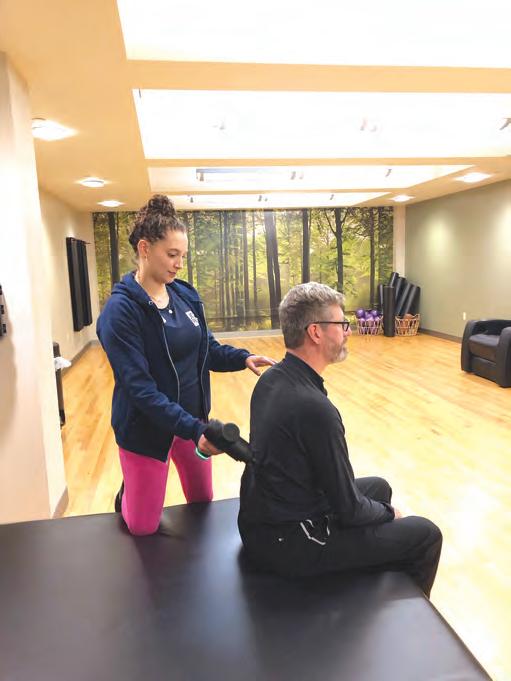
“The Catskills” May 7, The Oaks Theater A Film Schmooze will follow the screening.
By Chronicle StaJFilm, the region’s long-standing Jewish film festival, opens its 31st season on May 2 with the Pennsylvania premiere of “Left Alone Rhapsody: The Musical Memoir of Pianist John Bayless,” a documentary chronicling the Leonard Bernstein prodigy’s rise from a young musician to an internationally renowned recording artist and his struggle post-stroke to reinvent himself.
The screening, which will be held at the Carnegie Music Hall at 7 p.m., will be followed by a live performance by John Bayless, a Q&A with Bayless and the film’s director Stewart M. Schulman, and a dessert reception.
The festival, which runs through May 12, features 15 additional films from around the world, six of which can be accessed virtually.
In addition to the Carnegie Music Hall, other in-person venues include The Oaks Theater in Oakmont and the CMU – McConomy Auditorium. The festival will include a Mother’s Day screening and scholar-led Film Schmooze discussions.
As in years past, the festival’s films come from around the world, including Israel, Germany, Italy, France and Canada.
Reviews of four films follow. For a complete schedule of events and trailers, visit filmpittsburgh.org.

Once upon a time (more precisely, from the 1920s to the 1980s), the mountains were said to be made of sour cream, there were more varieties of herring than you could count, and the likes of Sid Caesar, Mel Brooks and Joan Rivers nightly regaled the Jewish audiences who had come to the country for rest, relaxation and, in many cases, romance.
In “The Catskills,” an 85-minute documentary directed by Lex Gillespie, viewers are transported through the lens of nostalgia to a seemingly enchanted time and place, when hordes of Jews escaping the heat and bustle of New York City summers spent the season at famed and glorious resort hotels or in the bungalow colonies that were mid-century America’s answer to the shtetl.
Through archival footage and interviews with those who were there, Gillespie paints

a vivid picture of a charmed era of Jewish history. At a time when Jews were not admitted into many mainstream resorts and hotels, the Catskills were part haven, part playground for their Jewish visitors, who built a community where they could unwind, socialize — and eat.
Former waiters (usually young Jewish men working the summer to pay their way through college), a dance instructor, resort guests and even Eleanor Bergstein — the author of the Catskills-inspired “Dirty Dancing” — reflect on the magic of summers spent bonding with other Jewish families in an idyllic yet homogeneous setting.
Food features prominently in the film, as do the comedians who performed in what’s been dubbed the “Borscht Belt” or the “Sour Cream Sierras.” Jerry Lewis, Jackie Mason, Lenny Bruce and Danny Kaye, for starters. Noteworthy careers were launched there.
And “thousands of matches were made in the Catskills,” we’re told. Parents, concerned about the prospect of intermarriage, were proactive in helping to find suitable partners for their children during their summer sojourns. When hearing of a waiter’s intention to go to medical school, a father’s response was “So, have you met my daughter?”
The glory days of the grand resorts — Grossinger’s, Kutsher’s the Concord — were over by 1986 due, in part, to other vacation spots finally opening their doors to Jews. While the end to that type of discrimination
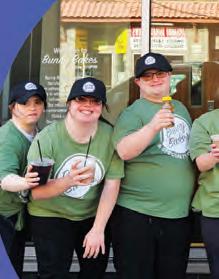







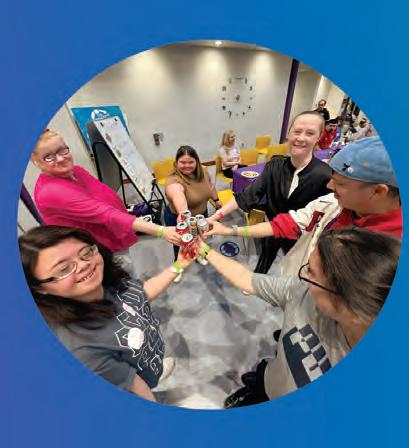

was a welcome development, viewers of “The Catskills” can’t help but wonder what we lost in return.
For those who experienced summers in the “Yiddish Alps,” “The Catskills” will be an entertaining romp down memory lane. And for those who never made it there, the film will be a pleasing peek into a moment of Jewish communal splendor.
— Toby Tabachnick
“Haute Couture” May 2-12, Virtual

Fairy godmothers have a way of making dresses magical. Sometimes with a wand, more often through stitching, but a talented few possess the gift of breathing life into garments. Esther, head seamstress at Dior on Avenue Montaigne in Paris, is no Merryweather but has spent her life mastering the craft.

CARNEGIE MUSIC HALL • MAY 2, 2024 • 7:00 PM

THE MUSICAL MEMOIR OF PIANIST JOHN BAYLESS MAY 2–12, 2024




hope you had meaningful and engaging seders this week and are finding lots of creative ways to eat matzo.
I’m going to go out on a limb and assume that Elijah did not come to your seder this year. If you have ever wondered, as I have, where Elijah is when he’s not at our doors — despite how many times we have invited him in — there are some ancient and modern teachings about Elijah and his whereabouts.
decided by Elijah. Hence, Elijah’s cup! In folk tradition, Elijah goes where he is most needed, but always in disguise. A Hasidic story tells of a pious and wealthy Jew who asked their rabbi, “For about 40 years I have opened the door for Elijah every seder night waiting for him to come, but he never does. What is the reason?”
The rabbi answered, “In your neighborhood there lives a very poor family with many children. Invite that family to celebrate with you and your family, in their home, and for this purpose provide them with everything they will need for the entire eight days of Pesach. Then on the seder night Elijah will certainly come.” The Jew did as the rabbi instructed, but after Pesach went
During the seder, in which we recall our transformation from “bondage into freedom, from sorrow into joy, from mourning into festivity, from darkness into light, and from slavery into redemption,” we invite Elijah with the prayer that all will soon know this kind of liberation.
to the rabbi and claimed that again they had waited in vain to see Elijah. The rabbi answered, “I know very well that Elijah came on the seder night to the house of your poor neighbor. But of course you could not see him.” And the rabbi held a mirror before the face of the Jew and said, “Look, this was Elijah’s face that night.”
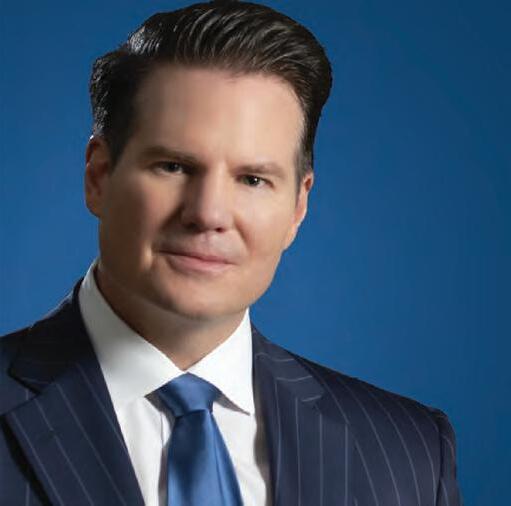


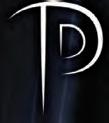




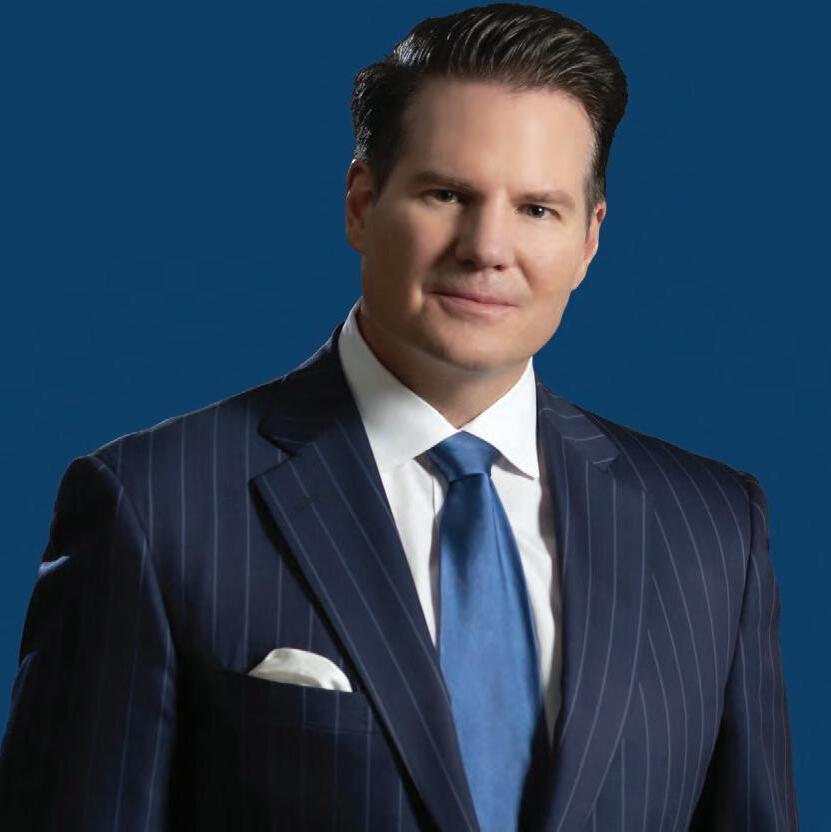
We are taught that Elijah will be the one to herald the coming of the messianic age. During the seder, in which we recall our transformation from “bondage into freedom, from sorrow into joy, from mourning into festivity, from darkness into light, and from slavery into redemption,” we invite Elijah with the prayer that all will soon know this kind of liberation. Interesting, then, to learn that this was not the original intention of inviting Elijah to the seder table. In the second century, the rabbis establishing the rituals of the seder had a disagreement. They connected the promises God made to the Israelites regarding their redemption from slavery to cups of wine at the seder. The problem was that they didn’t all count the same way.
Exodus 6:6 - 7 contains four promises, “I w ill free you from the labors of the Egyptians and deliver you from their bondage. I will redeem you with an outstretched arm… and I will take you to be My people.” A fifth promise appears in verse 8: “I will bring you into the land ...” Some sages said that the fifth promise is separate from the other four and therefore we should drink four cups. Others argued that all the promises are connected and we should drink five.
The discussion ended with four, but, just in case it should be five, we set out an additional, and symbolic, cup. And eventually, through some brilliant Talmudic logic, it was decided that all matters of disagreement among Jews, including this one, would be
Elijah goes where he is most needed. The poet and liturgist Alden Solovy knows where Elijah is this year:
Elijah is with the Hostages Elijah,
The prophet who will announce salvation and peace,
Will not visit your Pesach Seder this year. Don’t fill the cup. Don’t waste the wine. The prophet is exhausted,
Pleading with the heavens for the hostages Pleading with the heavens for the displaced, The grieving and lost.
Find hope in your own hands, In deeds of repairing the world And acts of lovingkindness.
Elijah is not coming to your Seder. The work of healing the world, And bringing redemption, He has left to us.
(© 2024 Alden Solovy) PJC
Rabbi Sharyn Henry is rabbi of Rodef Shalom Congregation. This column is a service of the Greater Pittsburgh Jewish Clergy Association.

DRICKMAN: Arthur Drickman (1931-2024), age 93, died on April 8, 2024, in Pittsburgh. He was born in Brooklyn, New York, in 1931 to Mae and Chaim Drickman, the older brother to Myra. He graduated from NYU School of Medicine in 1955, served in the US Navy from 1956-1958 as a lieutenant medical officer, then worked as a pathologist until retirement. Arthur was an avid handball athlete and traveled to 48 states and numerous national parks and monuments. He was father to Daryl Pollock, Johanna Drickman and Miriam Trudell, and beloved grandfather to seven. Services and interment took place at the National Cemetery of the Alleghenies on April 16, 2024. He is remembered by his wife, children and grandchildren. Contributions may be made to the National Park Foundation in his honor. Arrangements entrusted to Ralph Schugar Chapel, Inc. schugar.com
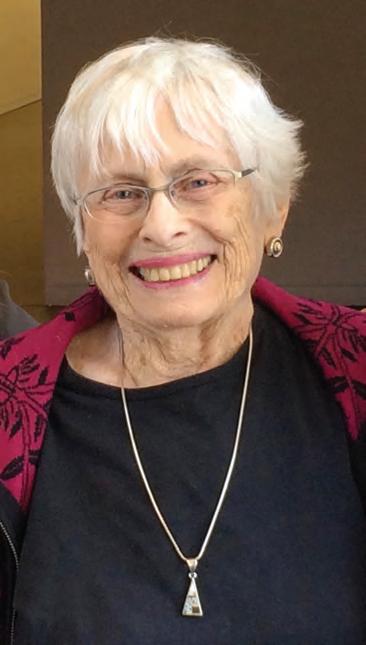
LAZAR: Audrey R. Lazar. On Friday, April 19, 2024, Audrey R. Lazar passed away peacefully with her family by her side. Beloved wife of the late Robert (RP) Lazar. Loving mother of Lauren (Richard) Stern, Cathy (Gary) Zamchick and Jeffrey (Thérèse Cruite) Lazar. Cherished grandmother of Sarah, Zachary (Jesse), Sofie and Claire. Audrey is also survived by many dear friends. Audrey was born in Clairton to Joseph and Goldie Recht on December 11, 1930, and was married to RP for 59 years. She and RP traveled, played golf at the Duquesne Golf Club and loved entertaining. She remained a lifelong Pittsburgher, an active member of Ladies Hospital Aid, volunteering at the Thyroid Screening Program at Montefiore Hospital and weekly in the archives at Rodef Shalom for 20-plus years. A lover of the music and the arts, Audrey had season tickets to the Pittsburgh Symphony for many years. She was a gifted pianist and an accompanist for ballet classes and local shows. Audrey was a voracious reader, Sunday New York Times crossword puzzle enthusiast, and loved playing mahjong. She enjoyed making needlepoint banners and covers for the Torahs and chairs in the sanctuaries at Rodef Shalom, where she and RP were congregants for over 60 years. If you were fortunate enough to meet Audrey, you’d know firsthand how her positivity and outgoing personality was bound to make your day brighter. She always raved about the accomplishments of her talented, artistic children and grandchildren. Everyone loved her! Audrey moved from her apartment in Shadyside to Weinberg Terrace in Squirrel Hill in 2019, where she made many new friends and reconnected with old acquaintances. She was a vibrant member of the community, taking advantage of many activities, and enjoying the last three years of her life to the fullest. Audrey will be deeply missed. Services were held at Ralph Schugar Chapel, Inc. Interment West View Cemetery of Rodef Shalom Congregation. In lieu of flowers, contributions may be made to the ACLU of Pennsylvania (http://action.
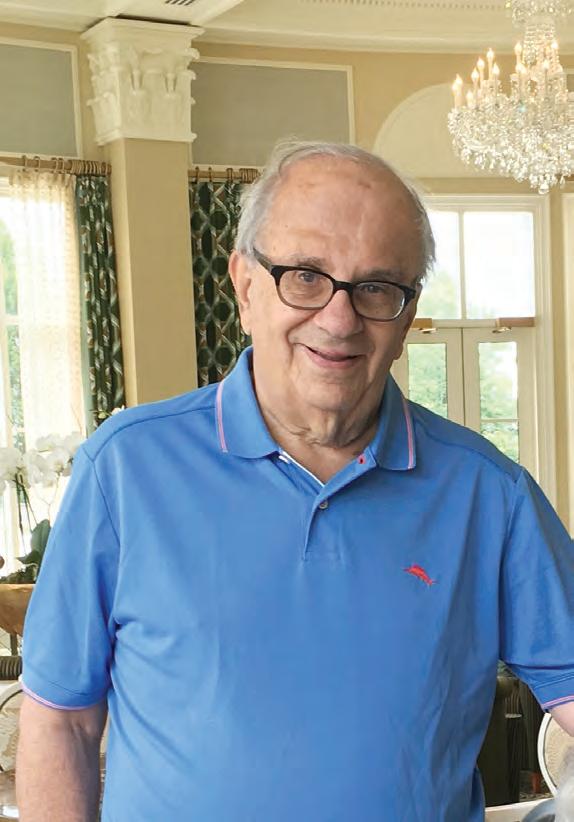
ROSENFIELD: Mark Perry Rosenfield passed away peacefully surrounded by his loved ones on April 14, 2024. Mark was born in Bradford, Pennsylvania, on Aug. 5, 1937. He is preceded in death by his loving parents, Louis and Margaret Rosenfield. He is survived by his adoring wife and partner, Phyllis Lando Rosenfield. He is also survived by his devoted daughters, Amy Rosenfield and Louise R. Schwartz (Brian), and his cherished grandchildren, Jordan Schwartz and Leah Schwartz (fiancé Stephen). Mark was a graduate of Wharton School of Business, University of Pennsylvania. Upon graduation, Mark started his investment career in Pittsburgh and, in later years, co-founded Mon Aimee Chocolat with his wife and daughter. Mark was an avid sports fan, especially Pittsburgh teams. He enjoyed history, travel and he cherished his time shared with family and friends. He is missed dearly. Services and interment were held at Beth Shalom Cemetery. Contributions can be made to American Cancer Society or The Cameron Heyward Foundation. Arrangements entrusted to

Sunday April 28: Isaac Abramovitz, Sarah Balkman, Merle N. Berger, David D. Bernstein, Helen Lorinczi Braunstein, Philip Golden, Beatrice Hollander, Harry Kornstein, Harry Melnick, Edna Gertrude Rothman Richman, Tillie Pechersky Serbin, Joseph Sherwin, Andrew H. Spitz, Saul Stein, Harry Stevenson, Pearl Wishnovitz, Albert Abraham Wolk
Monday April 29: Nellie Baker, Solomon Balfer, Jennie Bergstein, Richard W. Brown, Joseph Cook, Sophie Glick, Philip Goldberg, Rev. Solomon Horwitz, Jennie Ruttenberg Joseph, Leona Kaminsky, Fanny Kaufman, Esther Kohn, Frank Leff, Alex G. Levison, Regina Margolis, Max Neiman, Ruth Paris, Diann Taxay, Mollie Wikes
Tuesday April 30:Sadie Gelb Braunstein, Max Fischman, A. Morris Ginsburg, Edith Glosser, Celia Greenberg, Bruce Herron, Abraham Horowitz, Hannah Kamin, Isador Klein, Samuel Klein, Abraham Jacob Kwall, Bernard David Levine, Mattie Goldie Levine, Michael Liff, Rose H. Lowy, David Myers, Isaac W. Pettler, Max Pretter, Nettie Rosenthal, Dr. Zanvel Sigal, Myer Solomon, I. Weinbaum
Wednesday May 1: Marvin Adams, Lillian Ethel Brown, Samuel Feldman, Anna Goldman, Sidney M Levine, Florence Rosenfeld Myers, Lillian Rogoff, Sylvia Rosenfeld, Jennie R. Rush, Jacob Sadwick, Solomon Stalinsky, Edith G. Steiner
Thursday May 2: Sarah Alpern, Benjamin Americus, Alter L. Baker, Morris Benjamin, Morris Bergstein, Sherry Hilda Berkowitz, Sadye Burnkrant, Arthur R. Cohen, Robert M. Colnes, Myer Farber, Louis Freedman, Abraham Goldberg, Ida Cohen Hahn, Pfc. Lee Robert Katz, Benjamin Paul Krause, Harry Levine, Fannie Mayer, Sara Nadler, Sol Niderberg, Edward J. Pearlstein, Anita Closky Rothman, Ida K. Samuels, Dorothy Z. Sandson, Julius Schwartz, Freda Ferber Thorpe, Emma Winer
Friday May 3: Isadore Ash, Jennie Breakstone, Sam Dizenfeld, Robert F. Glick, Zelda Glick, Sarah Harris, Celia Jacobson, Margaret Green Kotovsky, Sam Labovitz, Mildred Levine, Ethel Mallinger, Beatrice Blumenfeld Nathan, Morris Perelstine, Marcia Ripp, Louis Rubin, William Sacks, Bess H. Strauss, Bertha Swartz
Saturday May 4: Sara Altman, Zachary Caplan, Lester Wolf Cohen, Philip M. Colker, Joseph M. Epstein, Isabel Glantz, Adel Horwitz, Maier Krochmal, Joseph M. Lazier, Hyman Lederstein, Ben Levick, Nathan Levy, Isadore Mendelson, Rae Pariser, Leah Simon, Norma Stockman, Earl Roy Surloff, Isidor Weiss








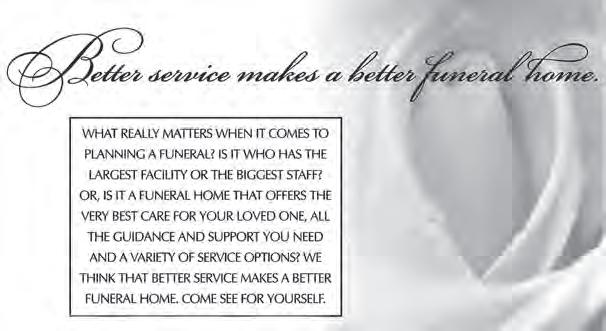


In the tapestry of life, there are moments both joyous and somber, occasions that mark our journey and de ne our legacy. Among these, few are as profound and signi cant as the nal farewell. For Jewish communities worldwide, the tradition of honoring the departed is not only a sacred duty but also a poignant re ection of heritage and faith. As we navigate through this process, one truth remains steadfast: the importance of preplanning your Jewish funeral.
“Planning a funeral in advance is one of the most loving things you can do for your family. It relieves your loved ones of the emotional burden of making decisions and wondering what to do and what you would have wanted.” ~Sharon Ryave Brody, President, Licensed Funeral Director, Ralph Schugar Chapel, Inc.
Every culture has rituals surrounding death imbued with symbolism and signi cance, guiding both the departed and the bereaved toward solace and remembrance. Within the rich fabric of Jewish tradition, these rituals are deeply rooted in millennia-old customs, embracing reverence for the deceased and comfort for those le behind. Yet, amidst the nuances of grief, one aspect o en overlooked is the necessity of preplanning.
Alleviating Burden
Taking care of your funeral and burial plans at a time when you are able to think and make decisions is more than a logistical arrangement; it is an act of profound foresight and compassion. In addition to shaping your nal tribute according to your wishes, you are ensuring that your values and beliefs are honored with dignity and respect. By choosing the cemetery and plot, funeral home, clergy, and monument in advance you are o ering a precious gi to your loved ones— the gi of clarity amidst chaos, of solace amidst sorrow. In a moment marked by emotional upheaval, the certainty of knowing that their loved one’s wishes are being honored.
Moreover, preplanning o ers other advantages. By securing funeral and burial arrangements in advance, you shield your families from the nancial strain o en associated with unexpected expenses. “I wonder what mom/dad would have wanted?” is a statement heard far too o en says Heath Petersen from Urbach Memorials. He adds, “Pre-planning takes the challenge and guess work o of your family, and it will save you money over time. I have activated pre-planned memorials from the 1990’s that are less than half the cost of what they would be today.”
ankfully, there are resources to assist in every aspect of preplanning. In partnership with Ralph Schugar Chapel and Urbach Memorials, among others, we understand the signi cance of preplanning within the Jewish Community. With the expertise of the Jewish Cemetery & Burial Association (JCBA) we stand ready to assist you with every detail.
You have questions, we have answers. We invite you to contact the JCBA at 412-553-6469. You will be met with compassion, understanding, patience, and experience. And, to learn more about the Jewish Cemetery & Burial Association, please visit our website at www.jcbapgh.org.
school. It was an atypical educational experience but one that celebrated individuality and creativity.
Schuller, however, still carried the weight of how she was treated in the past.
“I was pushing the world away from me as hard as I felt like the world had pushed me away,” she said.
As a result, she had the record for most detentions earned in the school’s history. She wasn’t breaking laws; rather, she frequently received detention for her quick wit — often directed as an insult to whoever had earned her ire.
After misbehaving, Schuller was required to write letters of apology.
“The school must have known they were funny because they saved them and, when I graduated, they gifted them back to me,” she said.
Schuller asked the crowd if they’d like to hear a few. As the cheers quieted, she read an apology letter to her art teacher.
“I was not one of the ones who put Sour Patch Kids in your hair. I know this sounds like something I would do, but it wasn’t me,” she read. “Since I have to write this letter, I guess I’m sorry I didn’t think to put Sour Patch Kids in your hair. It was funny, and since I’m getting punished for it, I might as well get some of the credit, too.”
On one of her many days spent in detention, Schuller’s teacher placed a paper in front of her. He wrote and underlined “Things Pam loves about herself” on the paper and waited for her to write.
“I remember wanting so badly to have
something to put on that list,” she said. “And I remember watching his face turn to fear as he realized I wasn’t just being a snarky teen, I truly had nothing about myself that I loved or that I felt added any value to this world.”
After that day, her boarding school put her in therapy and enrolled her in a variety of classes and workshops so that she could find something she connected with. One of those workshops was for stand-up comedy and improvisational theater.
She explained to the audience the most basic rule of improv: “Yes, and,” the concept that no matter what someone brings into the scene, you play off it and expand on it. When she performed, the symptoms of her Tourette’s were worked into the scene, and she made people laugh.
“After that very first workshop, I went back to that empty list that had been sitting on my desk for weeks of things that I loved about myself,” she said. “And I wrote ‘sense of humor.’”
That piece of paper is framed and hanging on the wall of her New York City apartment. Since the day she wrote on that paper, Schuller’s sense of humor has taken her — and her lessons — on tour to six countries and almost every state in the U.S.
“I’m so excited to keep sending the message: I love being different. I love it,” she said. “I have a disability and a mental health challenge. I’m always going to have a disability and a mental health challenge, and I’m not broken. I’m whole. I just exist in this world a little bit differently.” PJC
Abigail Hakas is a freelance writer living in Pittsburgh.






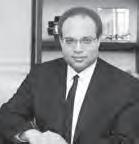



















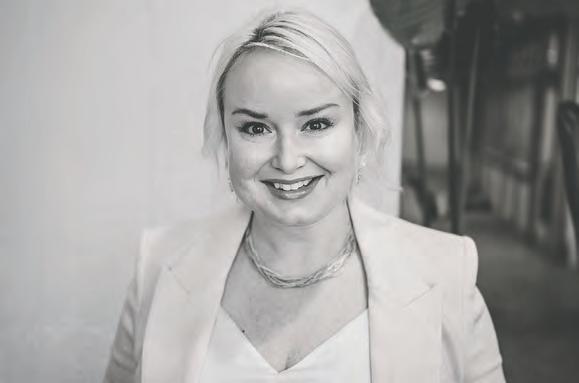
Continued from page 16
Shortly before retirement, Esther encounters Jade, a wayward Parisian youth cloaked in numerous responsibilities. With her needling personality, Esther pushes Jade to shed some burdens and intern at the celebrated studio.
A series of encounters and spats with largely foreseeable results prove that silk, tulle and boucle aren’t the only malleable items in a workshop: Coarse personalities can soften, mild manners can harden, and unlikely pairings can be both pleasing and fine.
Viewers may find Sylvie Ohayon’s “Haute Couture” predictable, but if the outcome is beauty, how bothersome is the lack of surprise?
— Adam Reinherz
“The Pitch: Patient Safety’s Next Generation”
May 2-12, Virtual

Safety’s Next Generation” brings to the fore the imperative of incorporating advanced technology to minimize medical errors.
The statistics are alarming, according to medical experts interviewed in this compelling documentary: One in four patients admitted to a U.S. hospital will suffer from a medical error.
Despite so many modern innovations in medicine, the film underscores, those applied to patient safety are “few and far between.”
Many of the harms suffered by patients are, in fact, preventable. If the proper technology could be applied, not only could countless lives be saved, but billions of dollars could be saved as well.
Machine learning and data mining could, and should, be employed to identify patterns of disease spread in hospitals. That technology already exists and is widely used in other industries, including gaming.
Virtual reality instead of anesthesia, for example, is offered as an effective possibility that comes with little risk.
Among the film’s highlights is following the journey of a young innovator in California set on using machine learning to prevent pregnancy complications. His passion is palpable.
The latest work from Chicago-based filmmaker Mike Eisenberg, the film not only examines the technology and its potential to save lives but also delves into the resistance to change prevalent in the health care industry.
“The Pitch” will appeal to viewers in the medical field as well as anyone who has been hospitalized or loves someone who has.
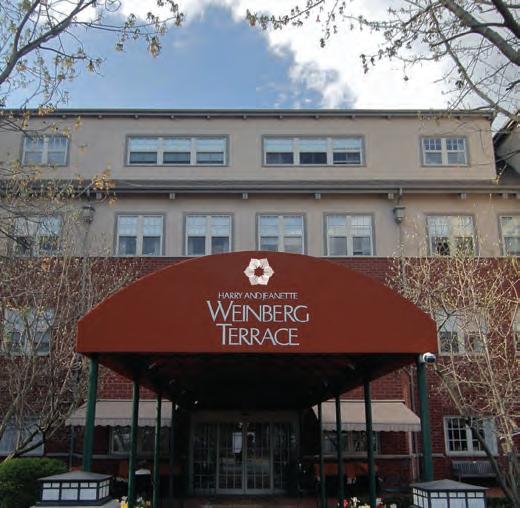

Ultimately, the film leaves viewers with optimism that change for the better is just around the corner, if only those within the industrial medical complex are open to collaboration with innovators from other fields.
— Toby Tabachnick
“Remembering Gene Wilder”

“Remembering Gene Wilder” opens with perhaps the most iconic moment of the actor’s impressive career.
Dressed in purple, facing the camera and singing as the less-than-centered candy factory owner Willy Wonka, Wilder intones, “Come with me and you’ll be, in a world of pure imagination.”
For nearly four decades, the actor, writer and director was able to keep that promise, creating a world of imagination for those who came along for the trip on television, in films and on the stage.
“Remembering Gene Wilder,” though, is more than a simple documentary detailing
the highs and lows of an artistic career. Instead, it focuses on the relationships Wilder found in his life — personal and professional.
Time is spent exploring Wilder’s connection to Mel Brooks — including extended dives into “The Producers,” “Young Frankenstein” — which the artist called “The happiest I’ve been on a film” — and “Blazing Saddles.” His relationships with Richard Pryor and his wife Gilda Radner are also featured.
The documentary examines Wilder’s relationship with his mother and the effects of a heart attack she suffered when he was still a young child. Of particular interest, in archival video the actor recounts that he was told not to upset his mother because it might kill her, and shares stories about his time working in a United States Army psychiatric hospital after being drafted in 1956.
Wilder, whom the film identifies as more “spiritual than religious,” and his connection to Judaism, is also explored.
And, of course, there’s plenty of discussion about “Willy Wonka and the Chocolate Factory.”
Told through first-person accounts by Wilder, friends and fellow actors, including Eric McCormack, Alan Alda, Carol Kane, Rain Pryor, Harry Connick Jr. and, of course, Mel Brooks, “Remembering Gene Wilder” is essential viewing for anyone interested in the life and method of one of the most talented actors from the second half of the 20th century. PJC


We’re talking about practice Community Day School students enjoyed a model seder. The preparatory exercise ensured everyone is ready for the main event.
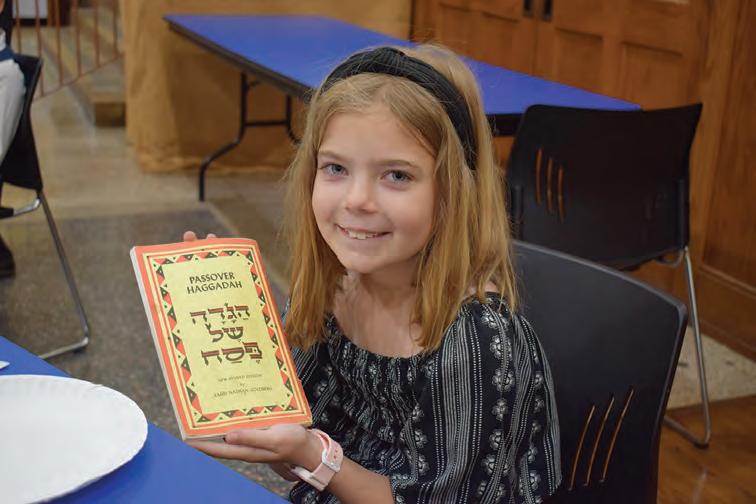
You got a fast car Duquesne University students joined Tikkun Olam Makers (TOM) on March 23 for a day of adaptation. Students worked with TOM, a nonprofit organization that provides open-source technology and adaptive equipment to individuals with disabilities, elderly or vulnerable populations through the Pittsburgh community, to adapt toy cars. With the help of nearly 40 people, three children received cars.

We don’t need roads.
It tracks Friendship Circle of Pittsburgh hosted “Training Tracks.” The program featured a conversation about disability in sports with athletes and coaches from the Special Olympics Three Rivers Region.

Band of Brothers Past Masters (Presidents) and one current of AEPi Alpha Kappa chapter at Carnegie Mellon University gathered during the Spring Carnival.

One fish, two fish
The Shifra Program at Aleph Institute, distributed more than $30,000 of gefilte fish, chicken and roasts to 168 Jewish families in the Greater Pittsburgh area. Deliveries were made outside the Aleph Institute. Each week, the Shifra program distributes thousands of dollars worth of food for Shabbat thanks to the Greater Pittsburgh Food Bank and 412 Food Rescue.

